ELEMENTARY: 1st-6th grade
THE MONTESSORI ELEMENTARY PROGRAM FOCUSES ON ACADEMIC MILESTONES AND DEVELOPMENT OF THE WHOLE PERSON WITHIN THE CONTEXT OF THE UNIVERSE.
Our program gives children the opportunity to set their own goals, budget their time, and appraise the results of their work, so they become self-starters who work from genuine interest and enthusiasm for their work. The noncompetitive environment emphasizes respect for the individual and cooperation within a group.
Evaluation of a student’s progress is partially inherent in the materials and also made through student/Guide conferences, written evaluations provided to parents, and standardized testing. The Guides at White Bear Montessori monitor and evaluate children’s progress according to the academic standards defined by the State of Minnesota but within the context of the highly individualized learning environment of a Montessori classroom.
The Elementary schedule is Monday-Friday from 8:30 am to 3:30 pm. Students may also participate in Before and After Care. Learn more about Tuition Rates.
THE EXAMPLES BELOW INCLUDE A SMALL SAMPLING OF THE VAST OPPORTUNITIES PROVIDED TO THE CHILDREN IN OUR ELEMENTARY CLASSROOM.
LANGUAGE / WRITING / ART / MUSIC
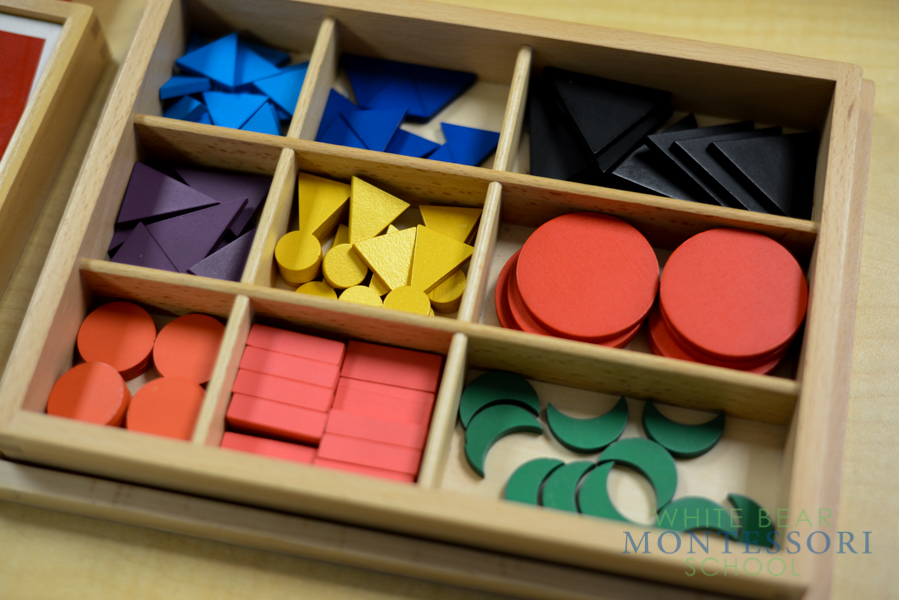
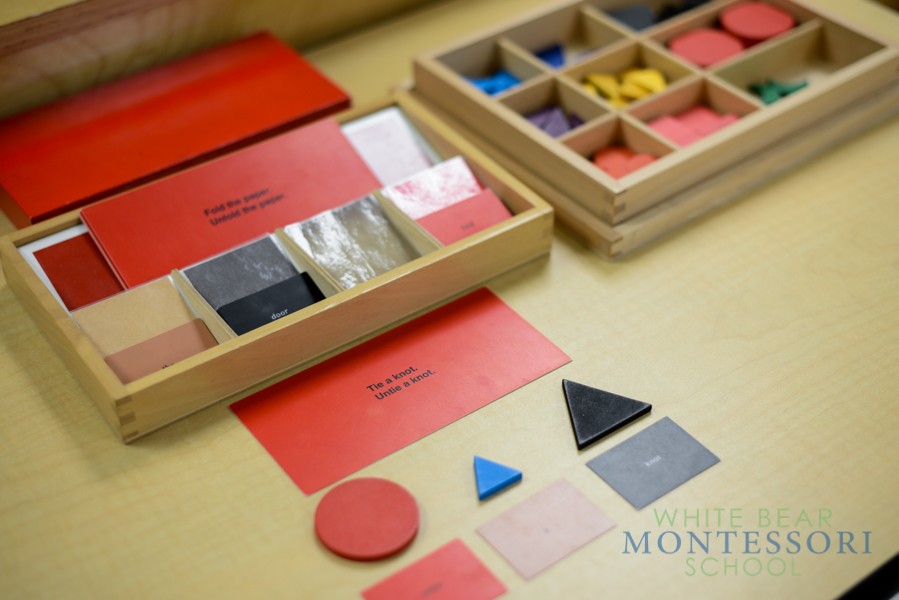
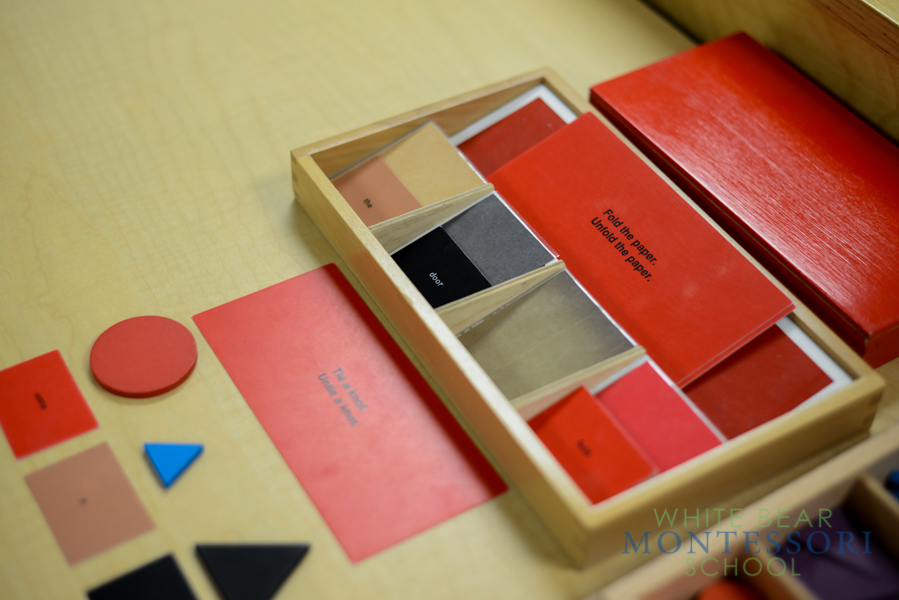
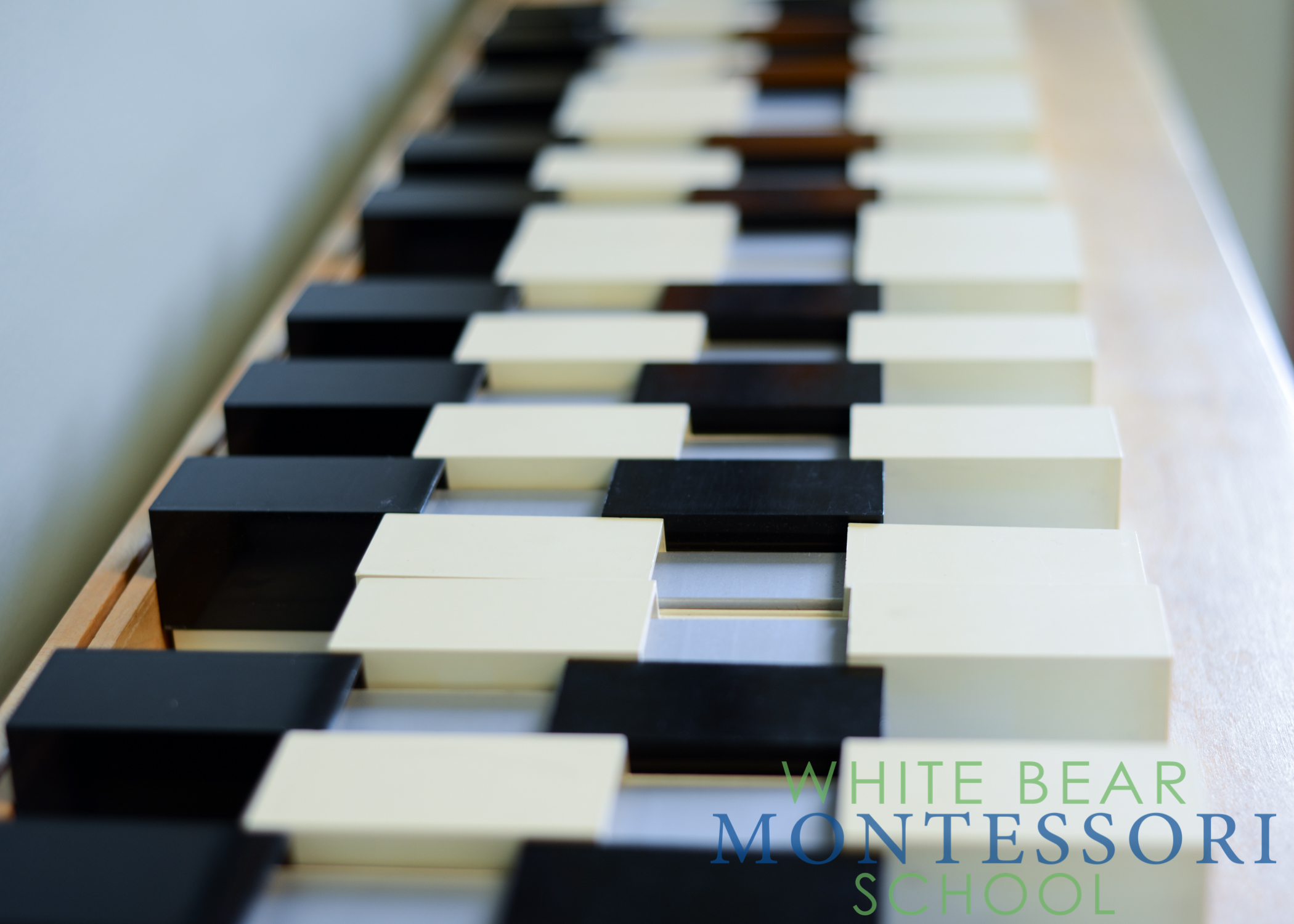
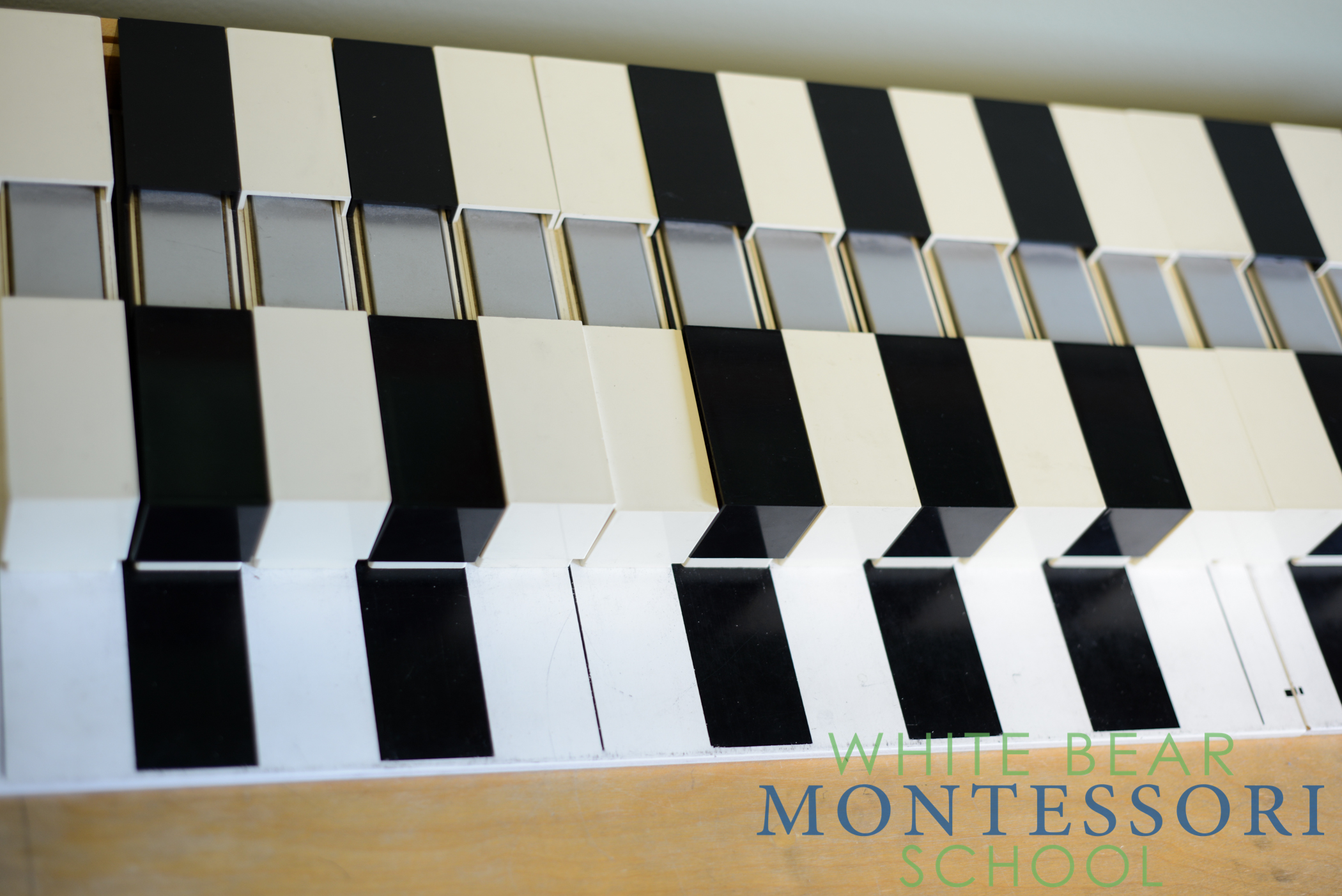
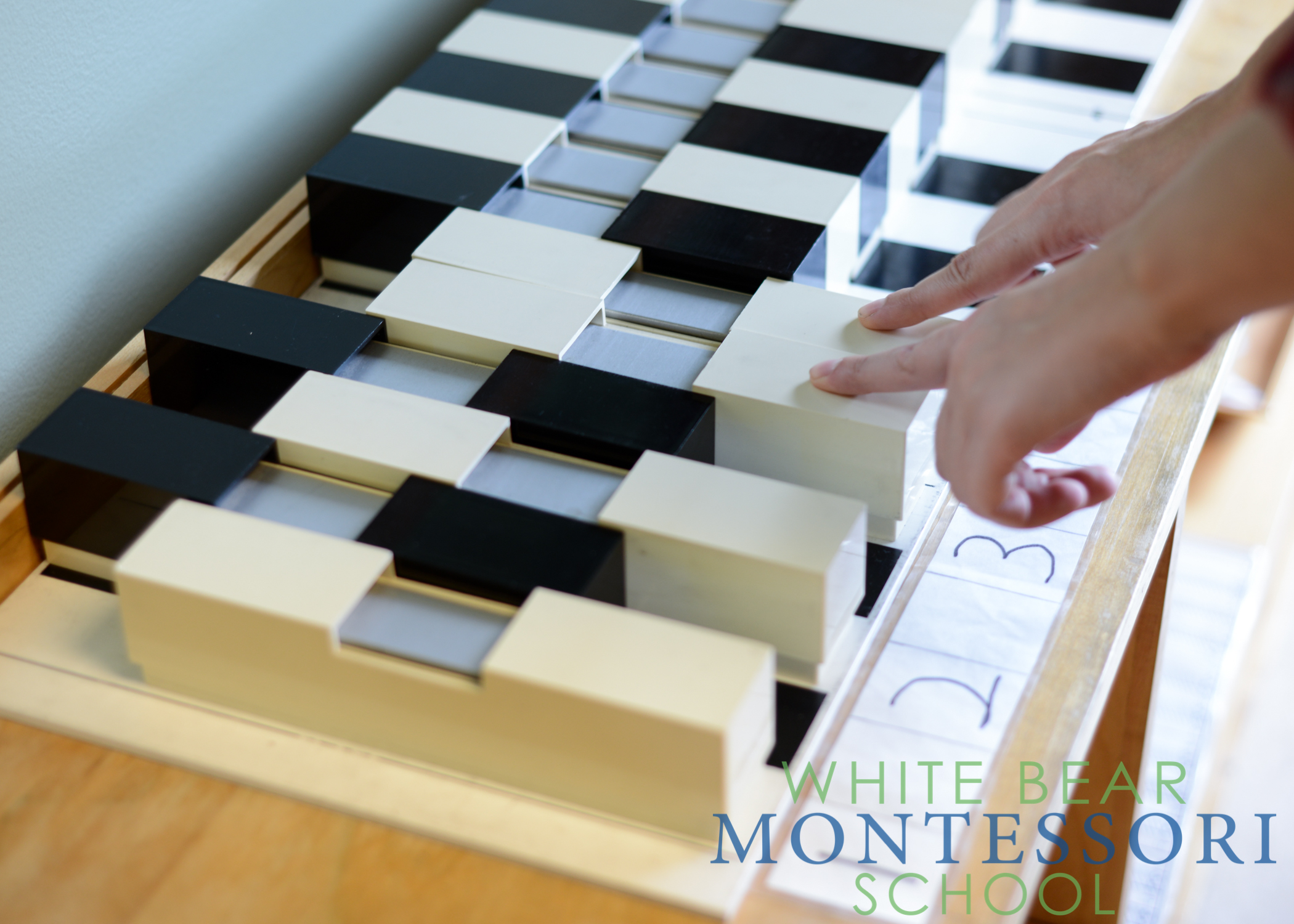
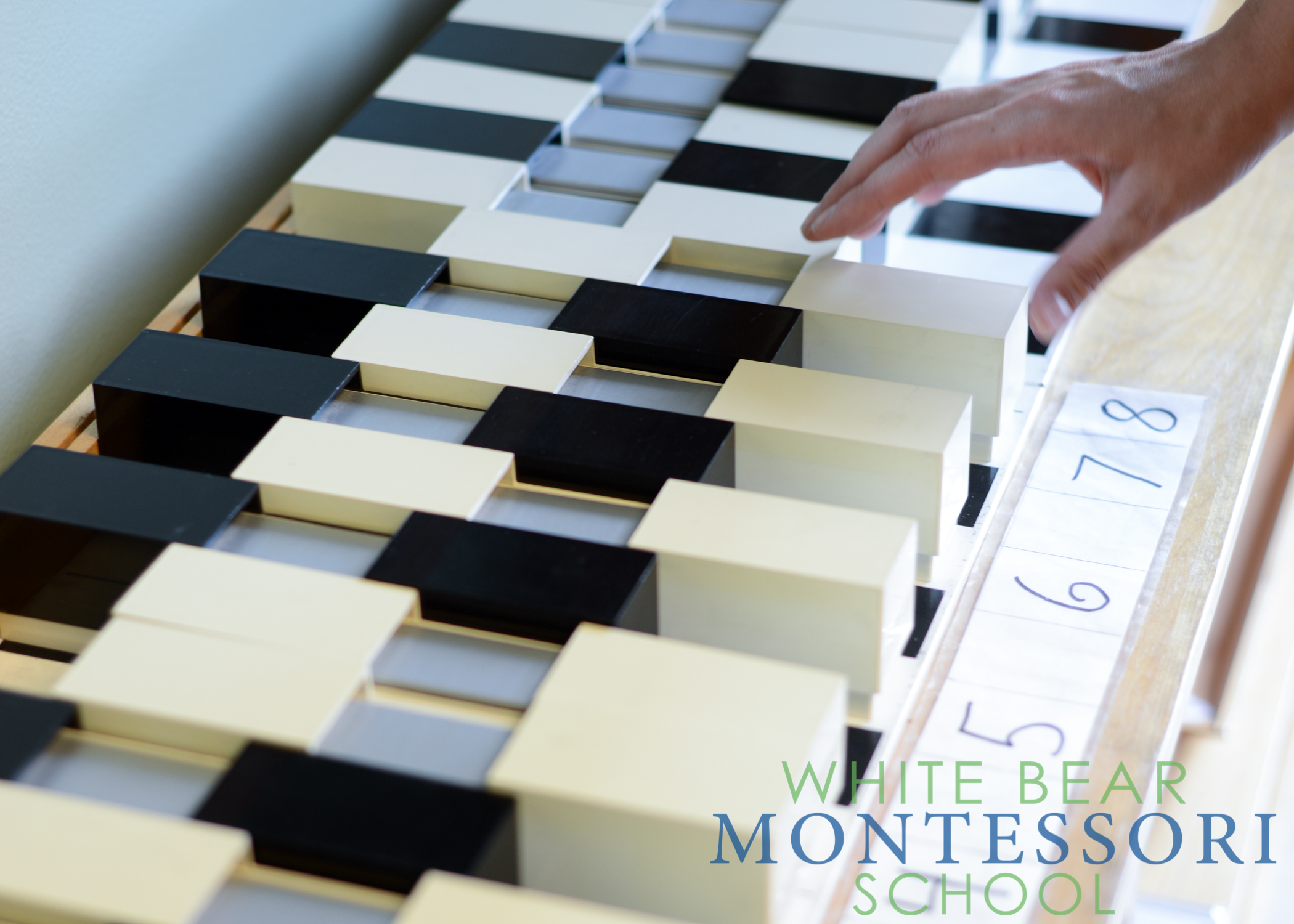
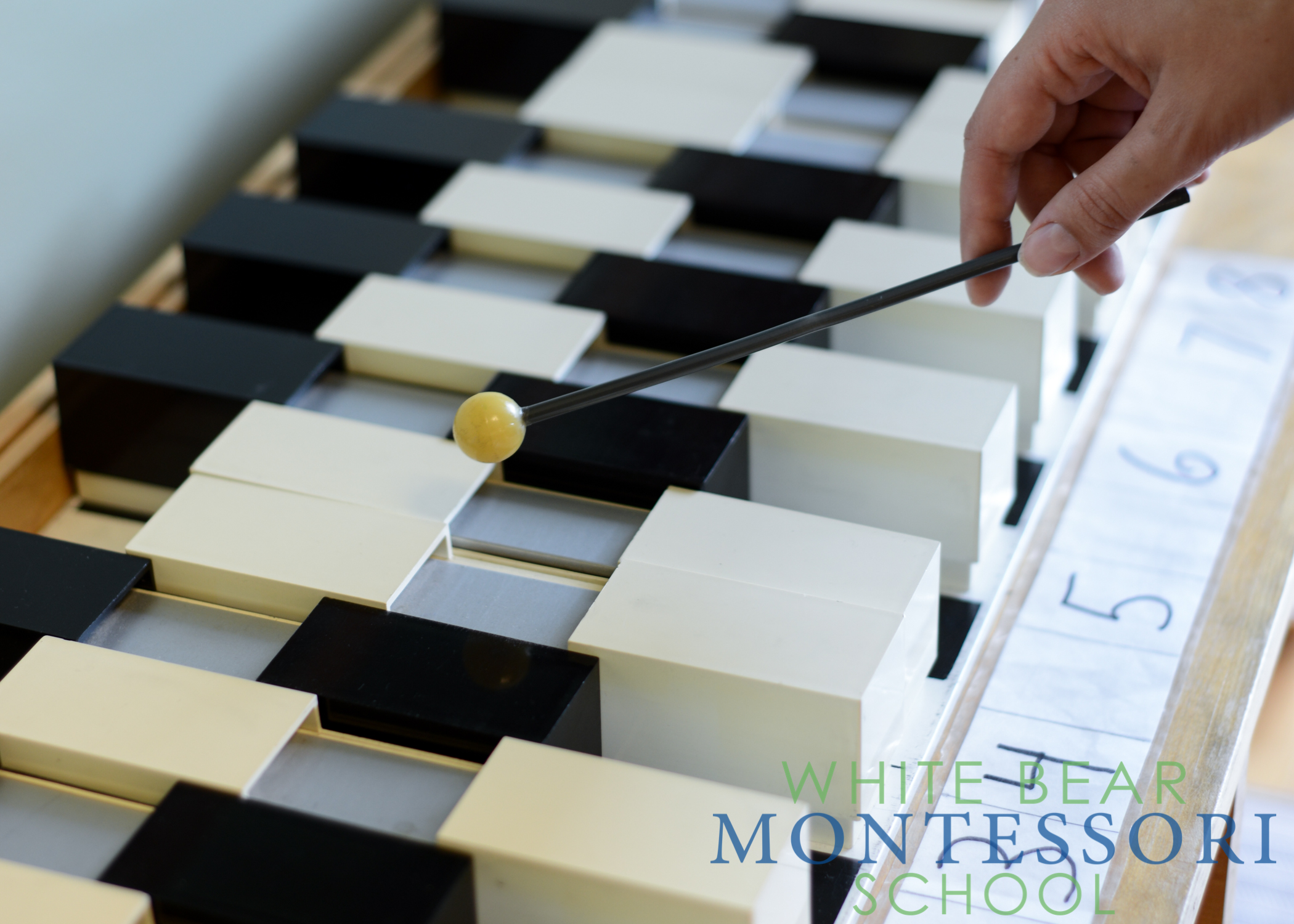
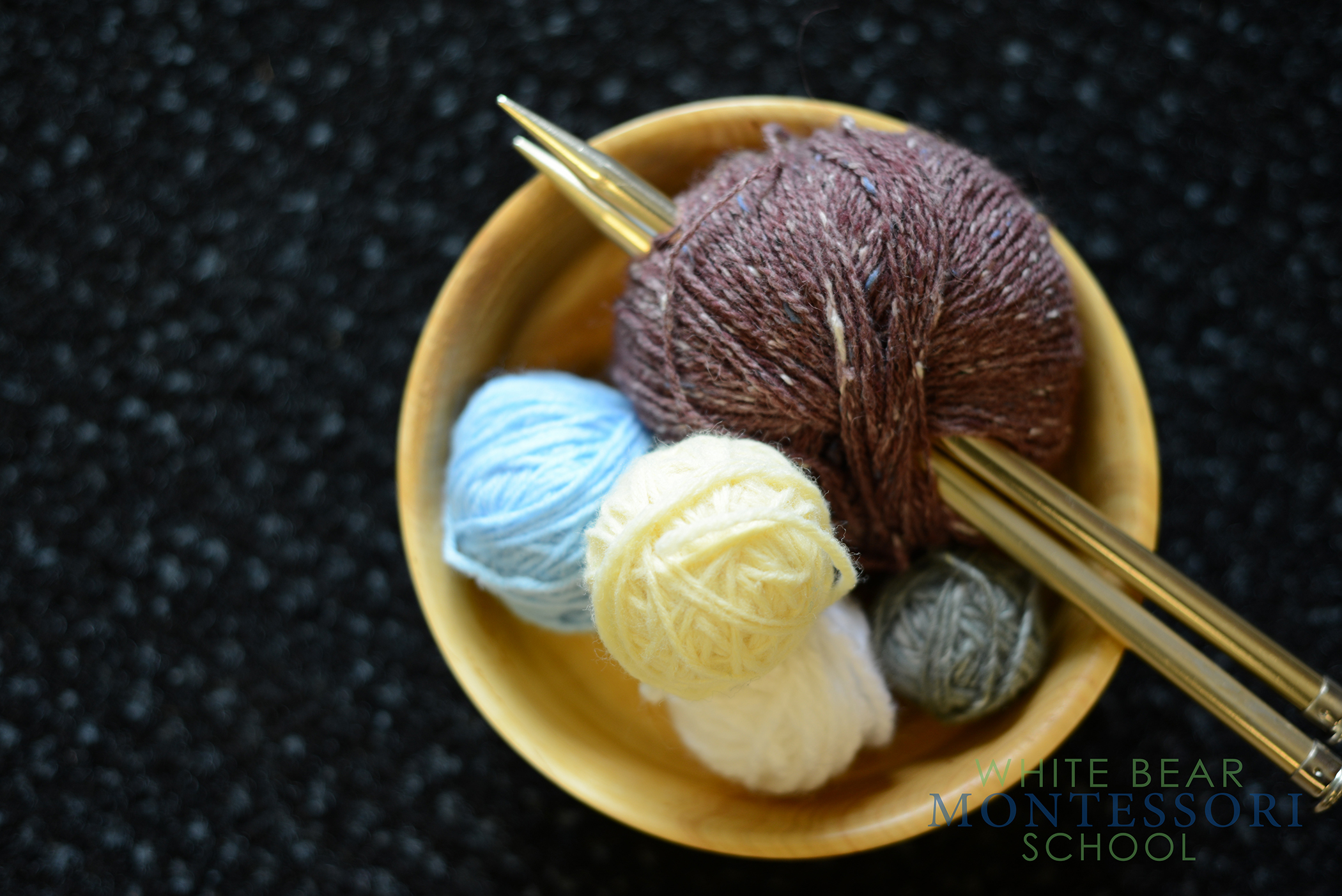

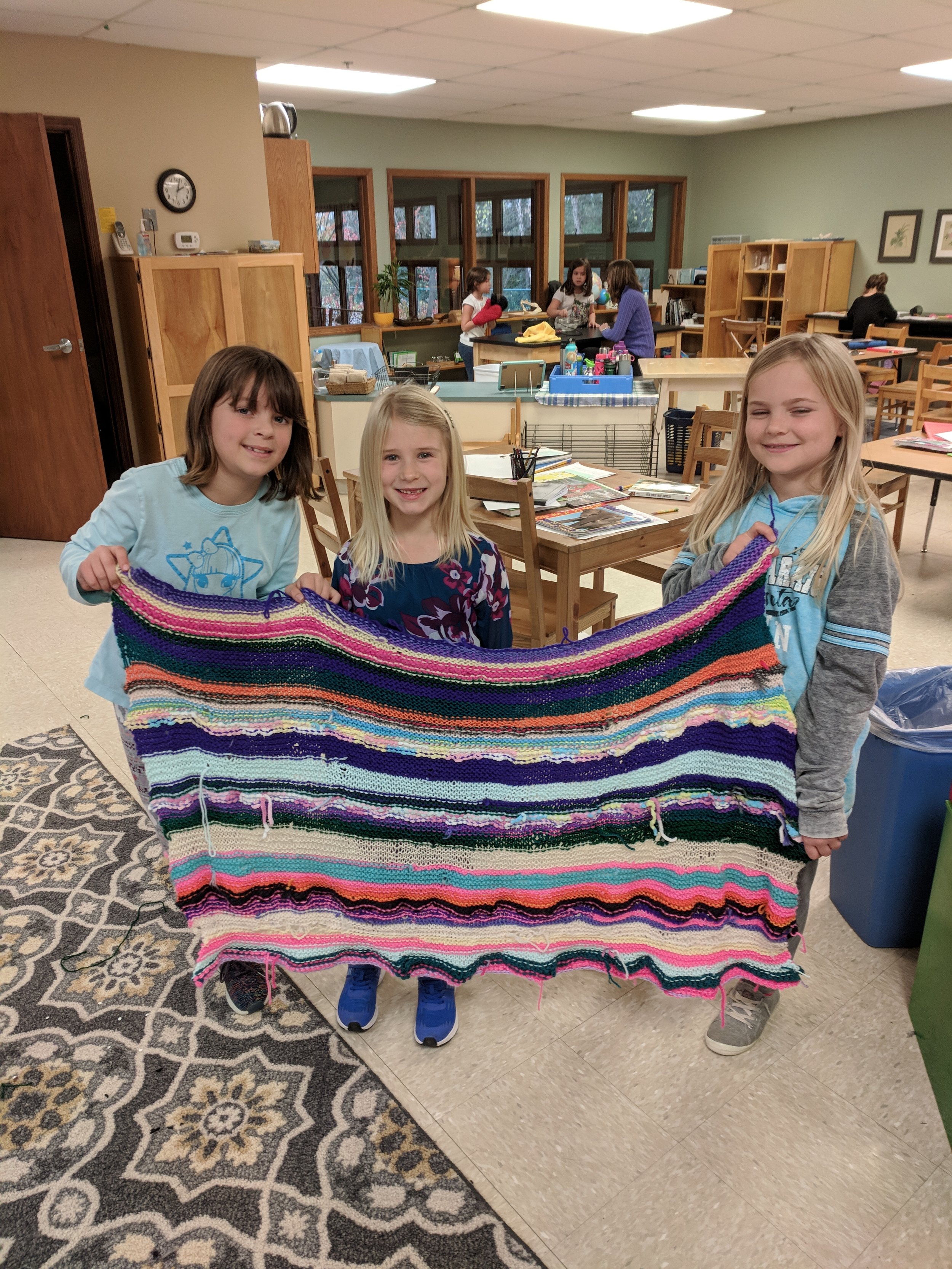
GRAMMAR BOXES
GRAMMAR BOXES are an interactive, experiential, and fun way to learn grammar. There are eight grammar boxes in the elementary Montessori environment, each one highlights a specific part of speech. The children are able to experience the part of speech through a listening activity before working with each box. The children read the large card, build the sentence with the smaller cards, act out the sentence, and finally symbolize each part of speech.
HANDWORK
Handwork includes knitting, crocheting, latch work, braiding, cross stitch, and weaving. Handwork is beneficial not only in developing fine motor skills but also in increasing concentration. When learning any of these skills children are fully engaged in understanding the process and mastering the movements necessary to create something with the hand. Handwork provides opportunities for community building as well. Many children in the class work together to make projects, which provides an opportunity for community building. Some children enjoy making gifts for each other.
TONE BARS
TONE BARS are the Montessori Elementary equivalent of the bells in Children's House. Each individual bar can be moved and rearranged to allow the child to explore music in more depth. They learn to match and grade the notes, as well as write and compose music. Elementary children enjoy composing songs for each other to play.
MATHEMATICS / SCIENCE / GEOGRAPHY


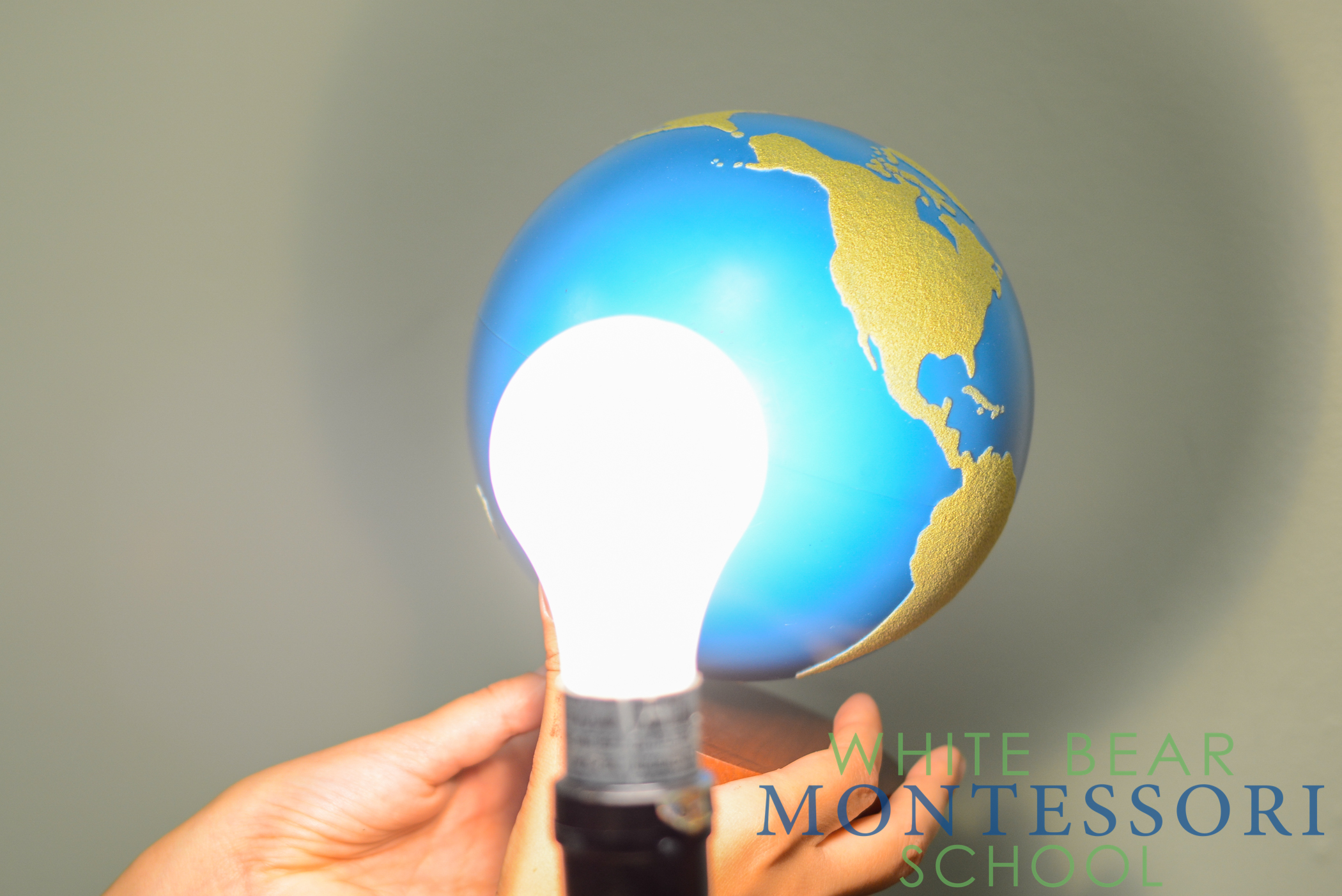
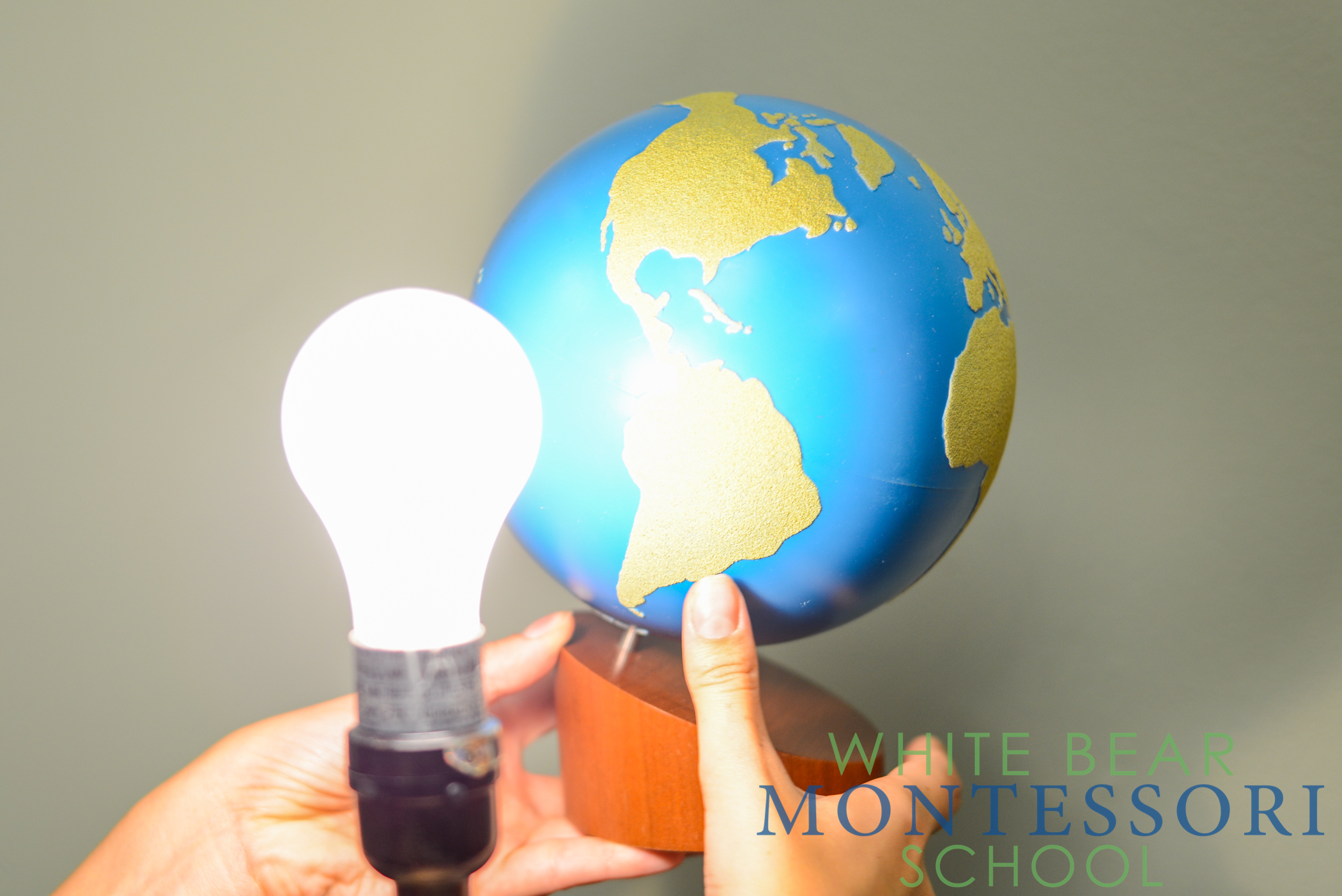
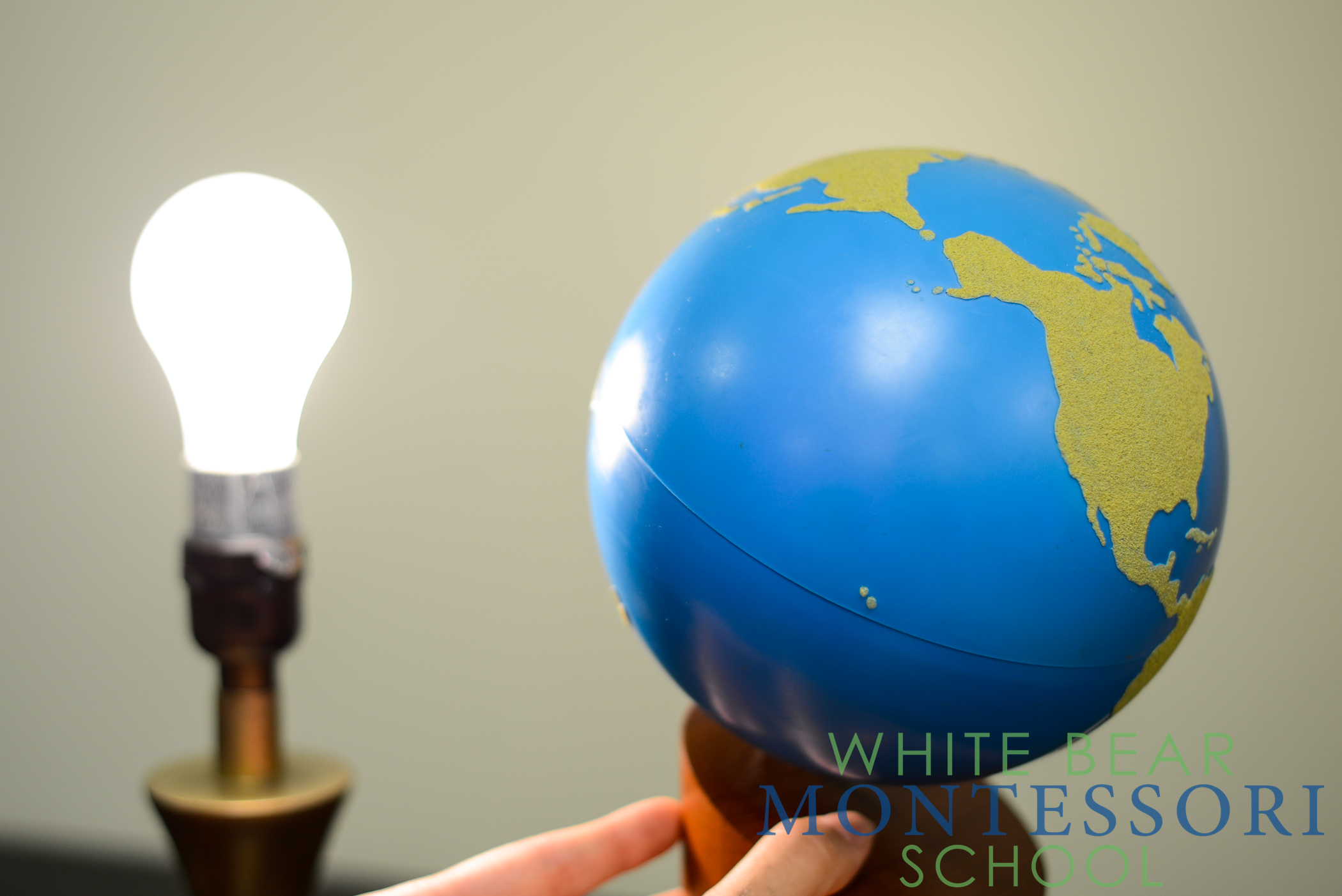
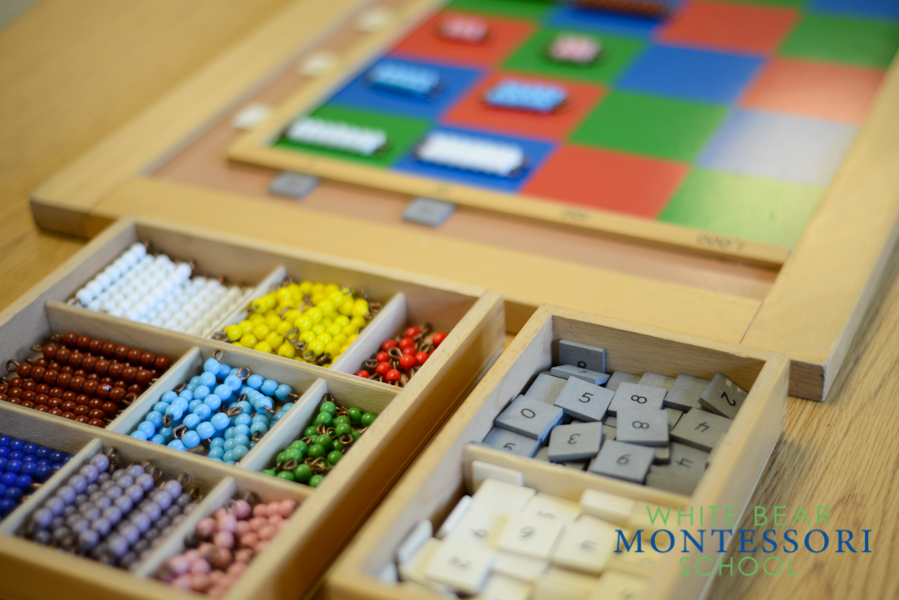
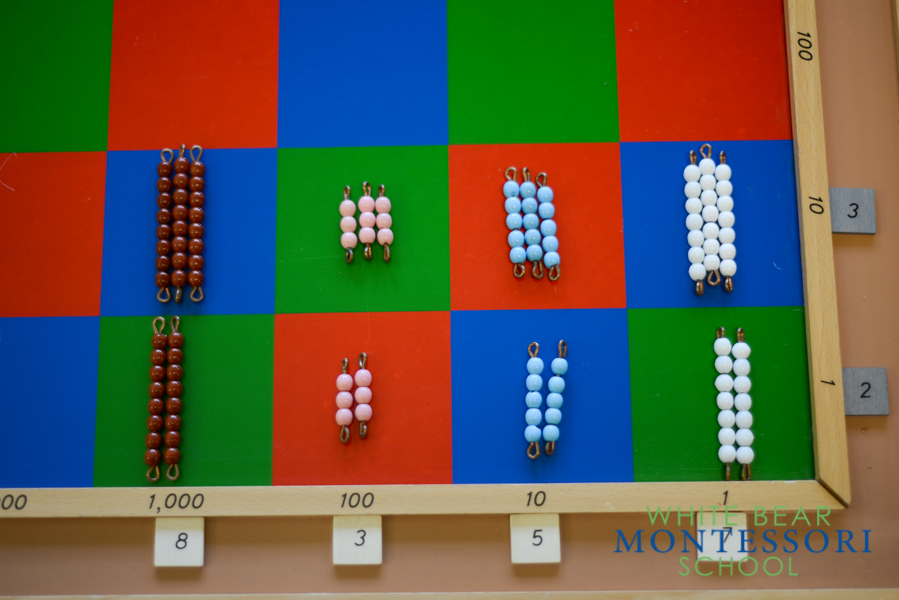
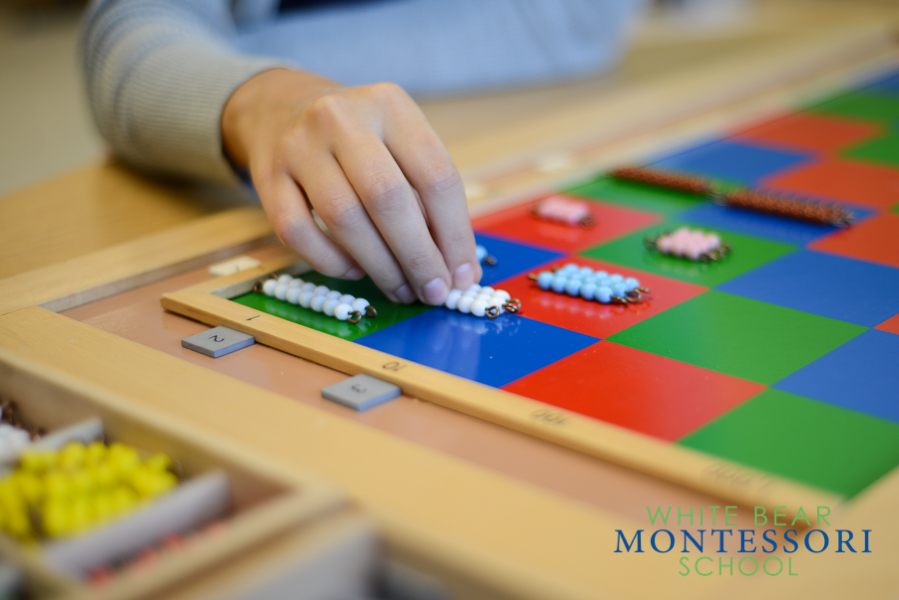
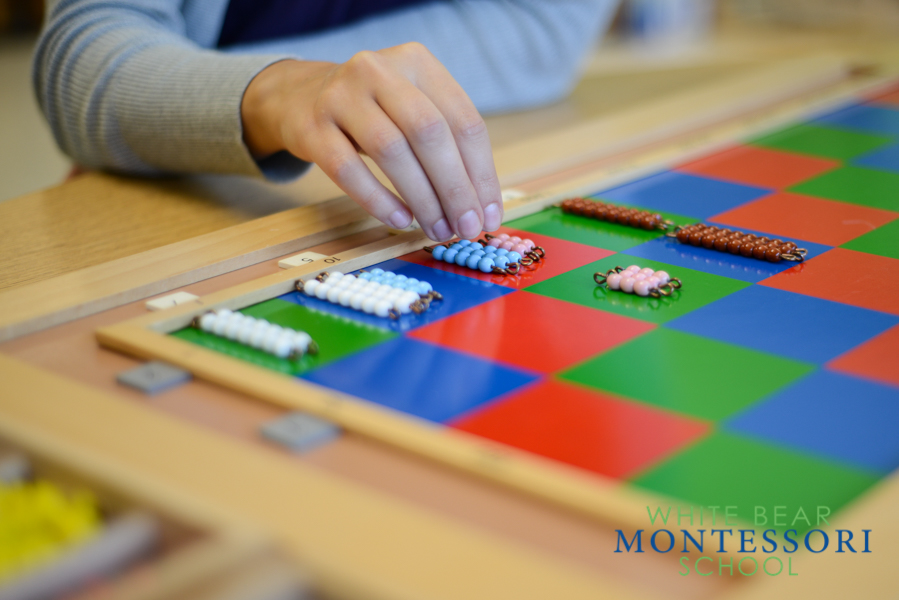
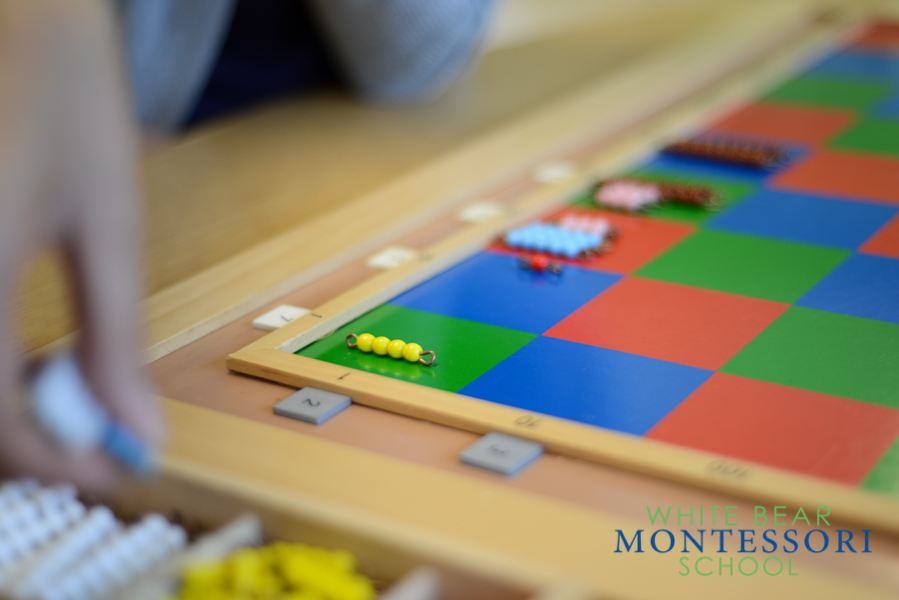
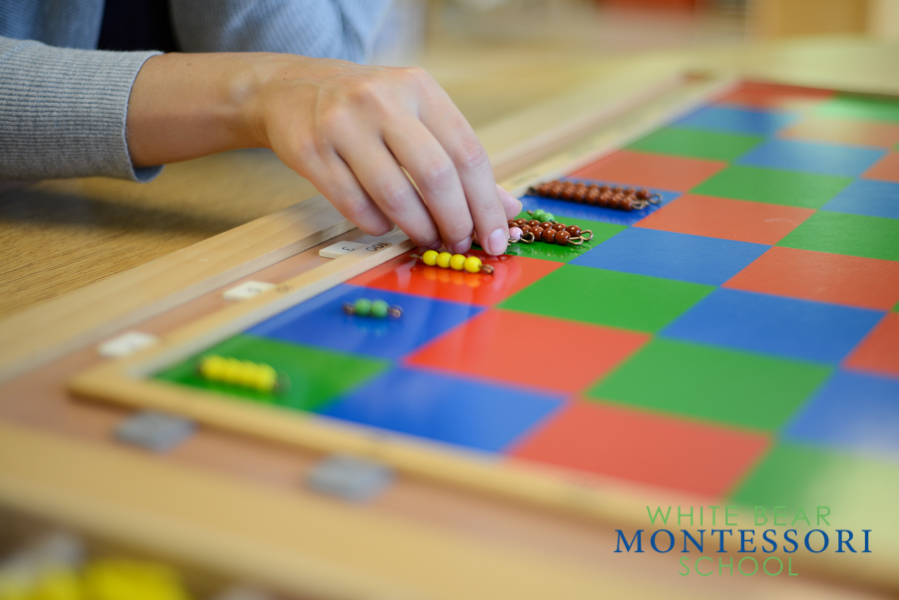
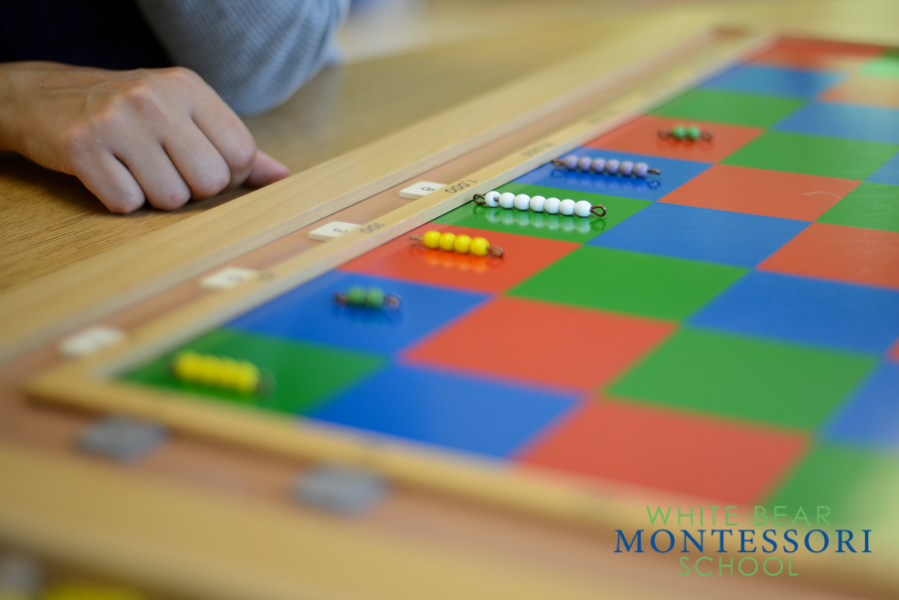
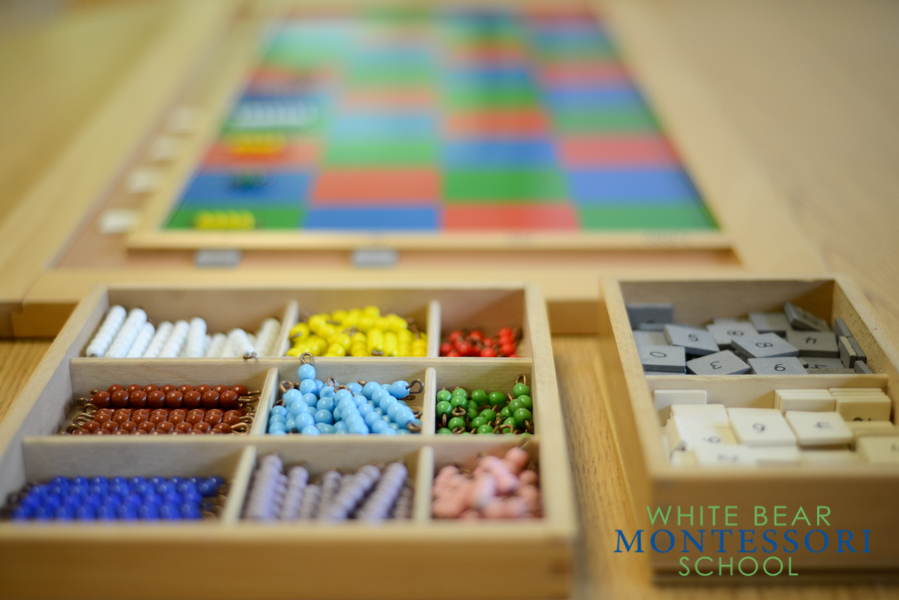
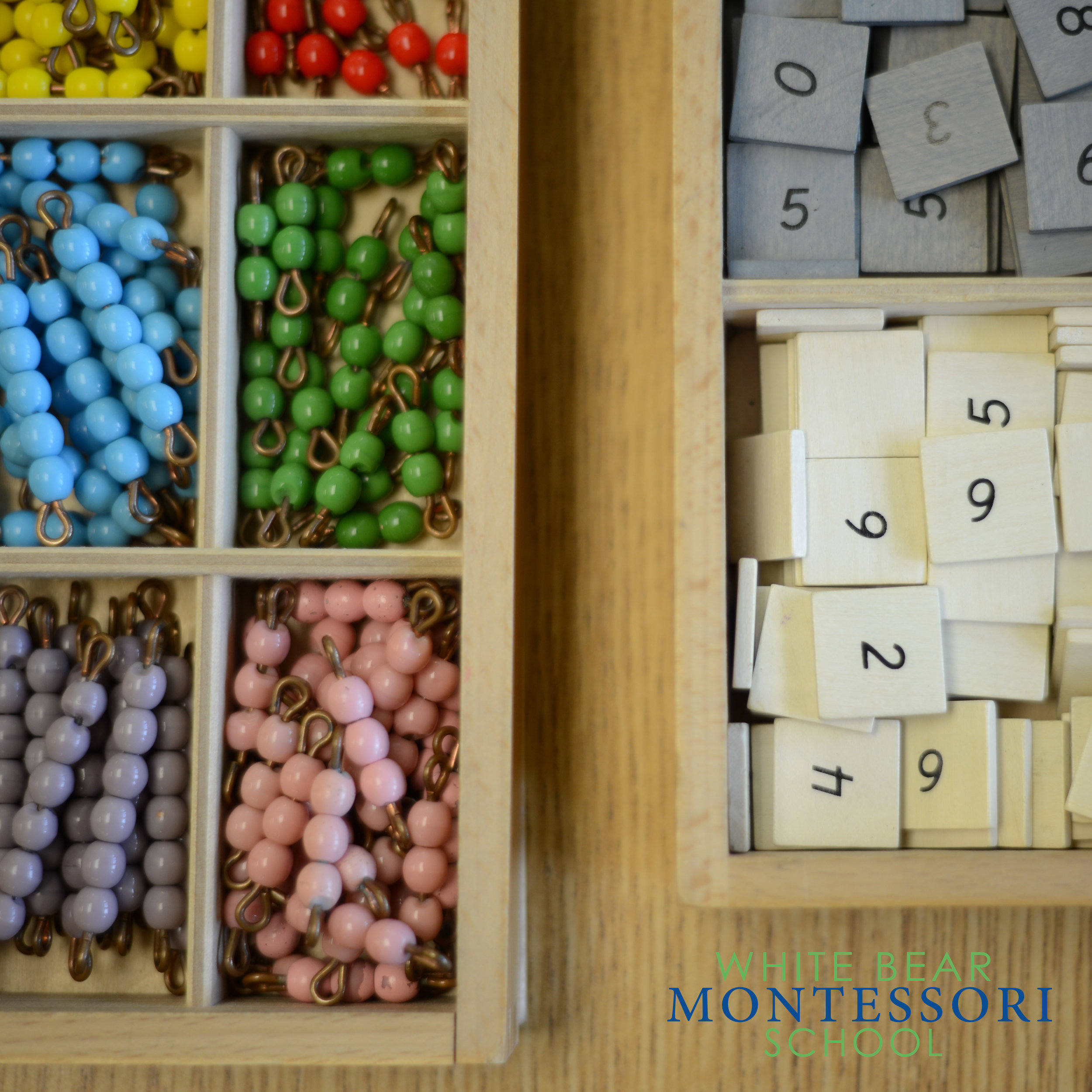
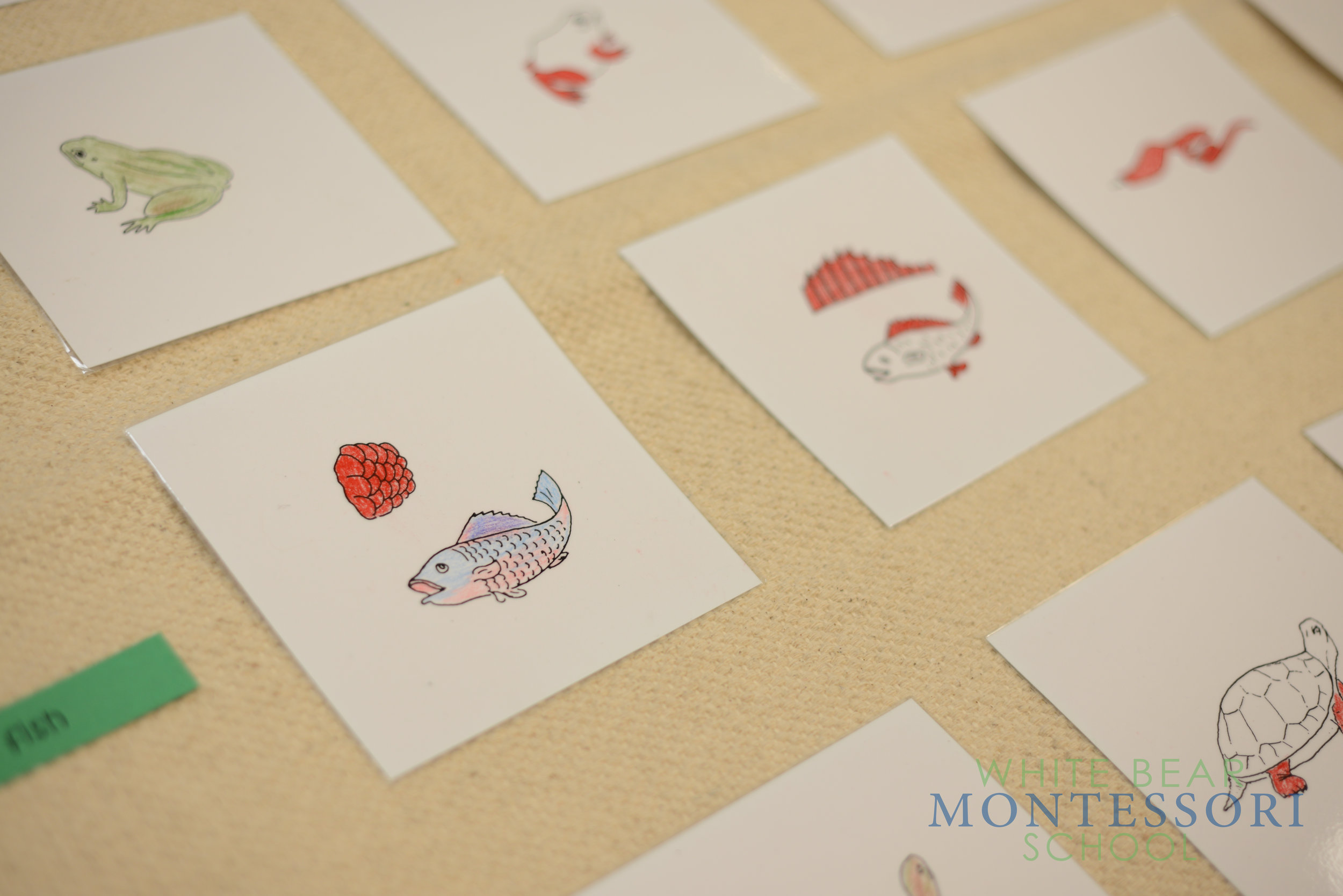
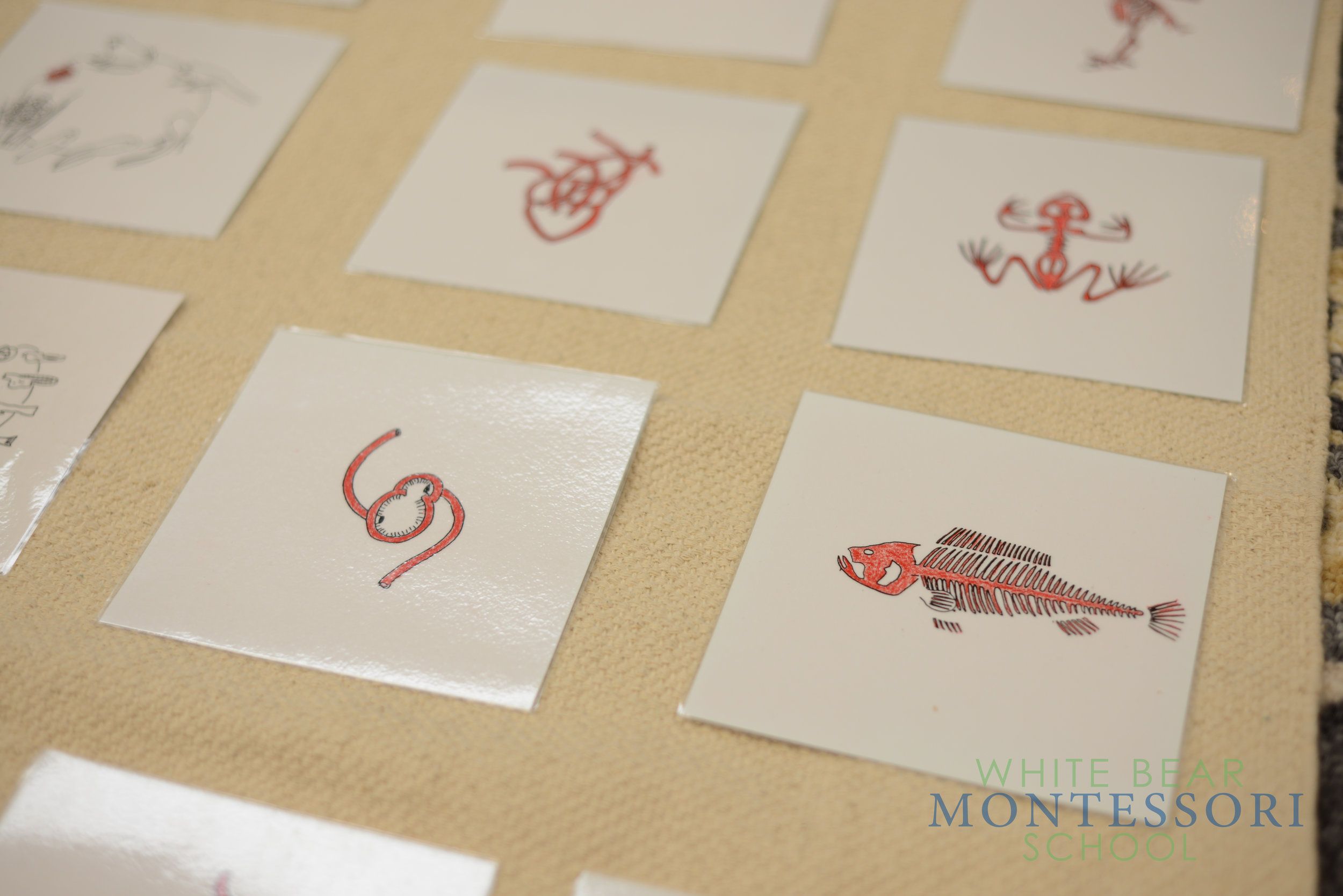
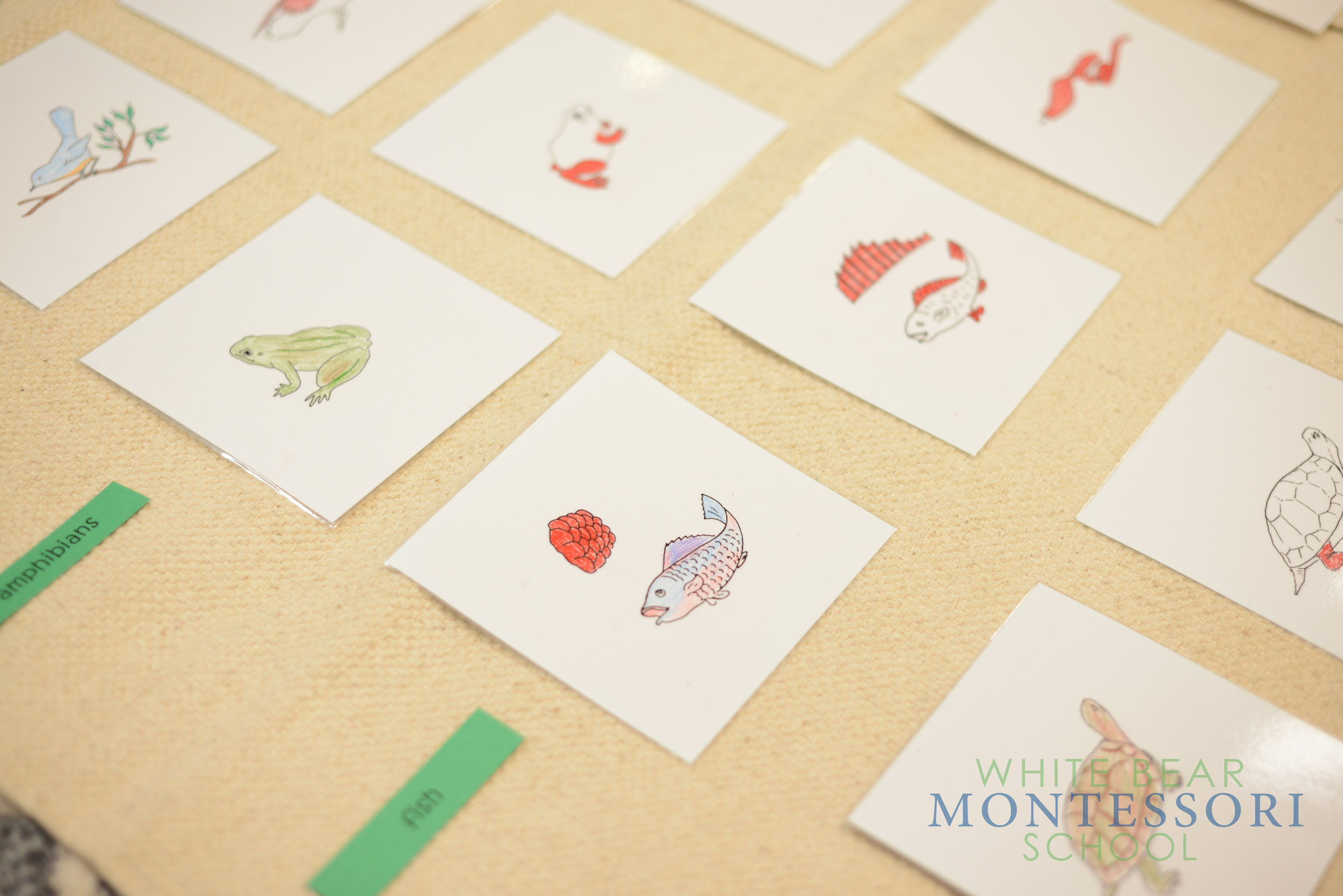
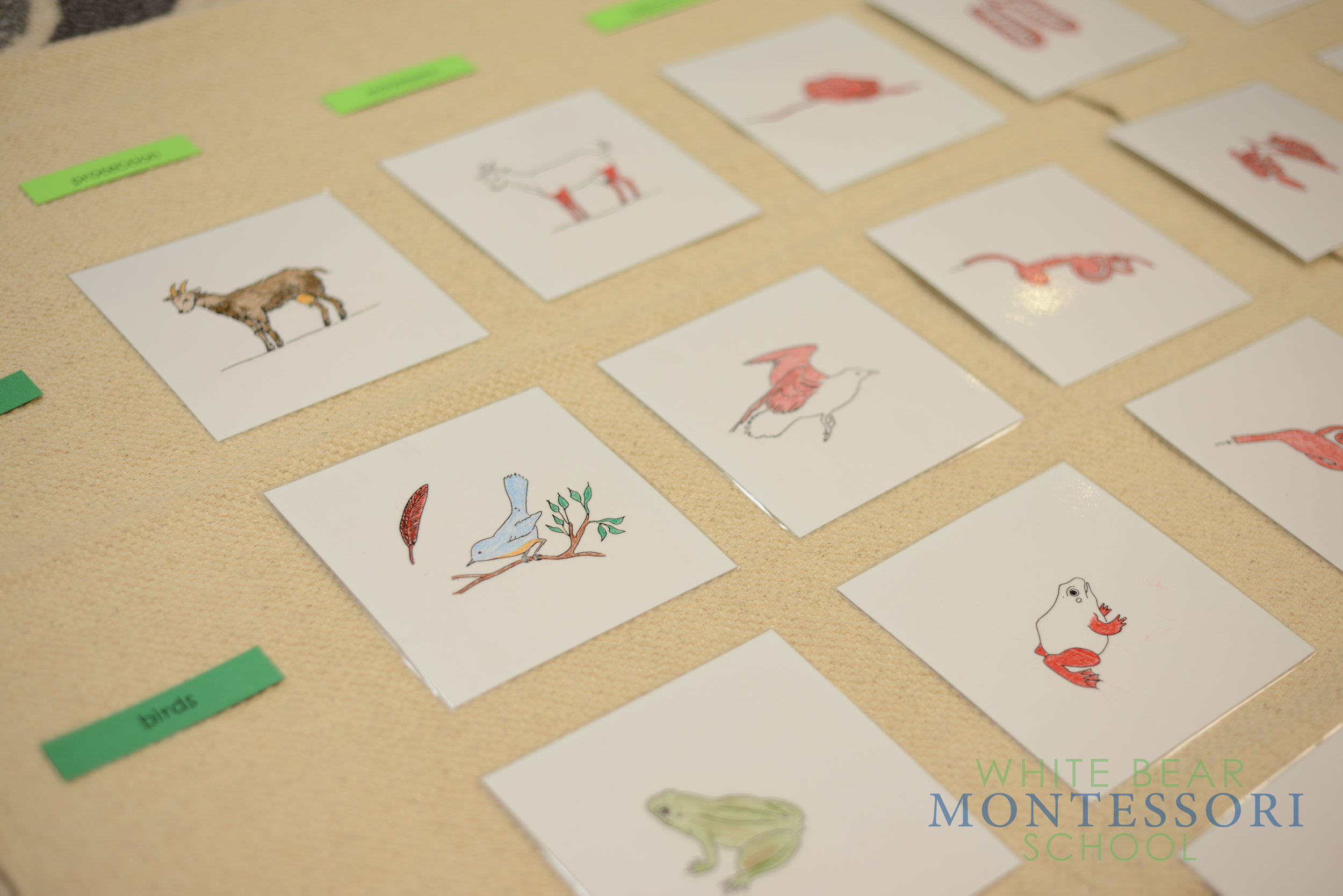
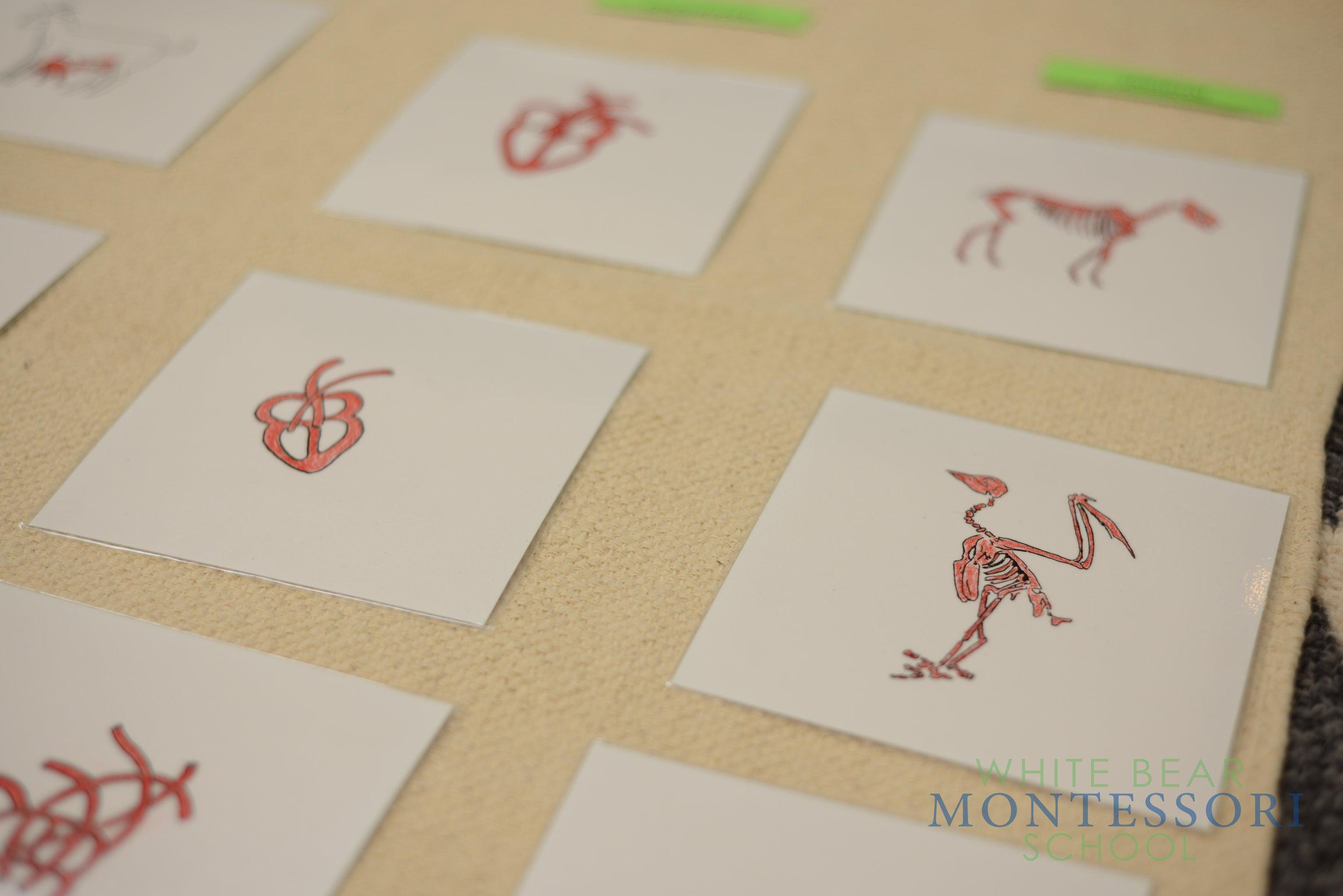
SUN AND EARTH
Children are curious about their world. Using a lamp acting as the sun, the children manipulate a globe to explore movements of the earth, day and night, tilt of the axis, seasons, and latitude and longitude. These SUN AND EARTH lessons and material allows these big concepts to become clear right in the hands of the child.
CHECKERBOARD
The CHECKERBOARD is a foundational math material in the elementary classroom. It supports very young children in completing large multiplication problems. The material helps to isolate each multiplication fact in the larger problem and the children place the appropriate amount of bead bars on the board for each one before simplifying to find the final product. The ability to solve really enormous problems is exciting for the elementary child. The repetition of multiplication facts supports the child in learning their times tables.
BODY FUNCTION
Young children have a great fascination with animals. In the Montessori elementary classroom we move beyond what can be seen by the eye and discuss the function of each body part using The BODY FUNCTION Material. Using a set of three-part-cards, the children work through a series of lessons which explore each body part in relation to its function or purpose for the animal. They explore each of the five classes of vertebrates and compare the differences between them.
BEYOND THE CLASSROOM
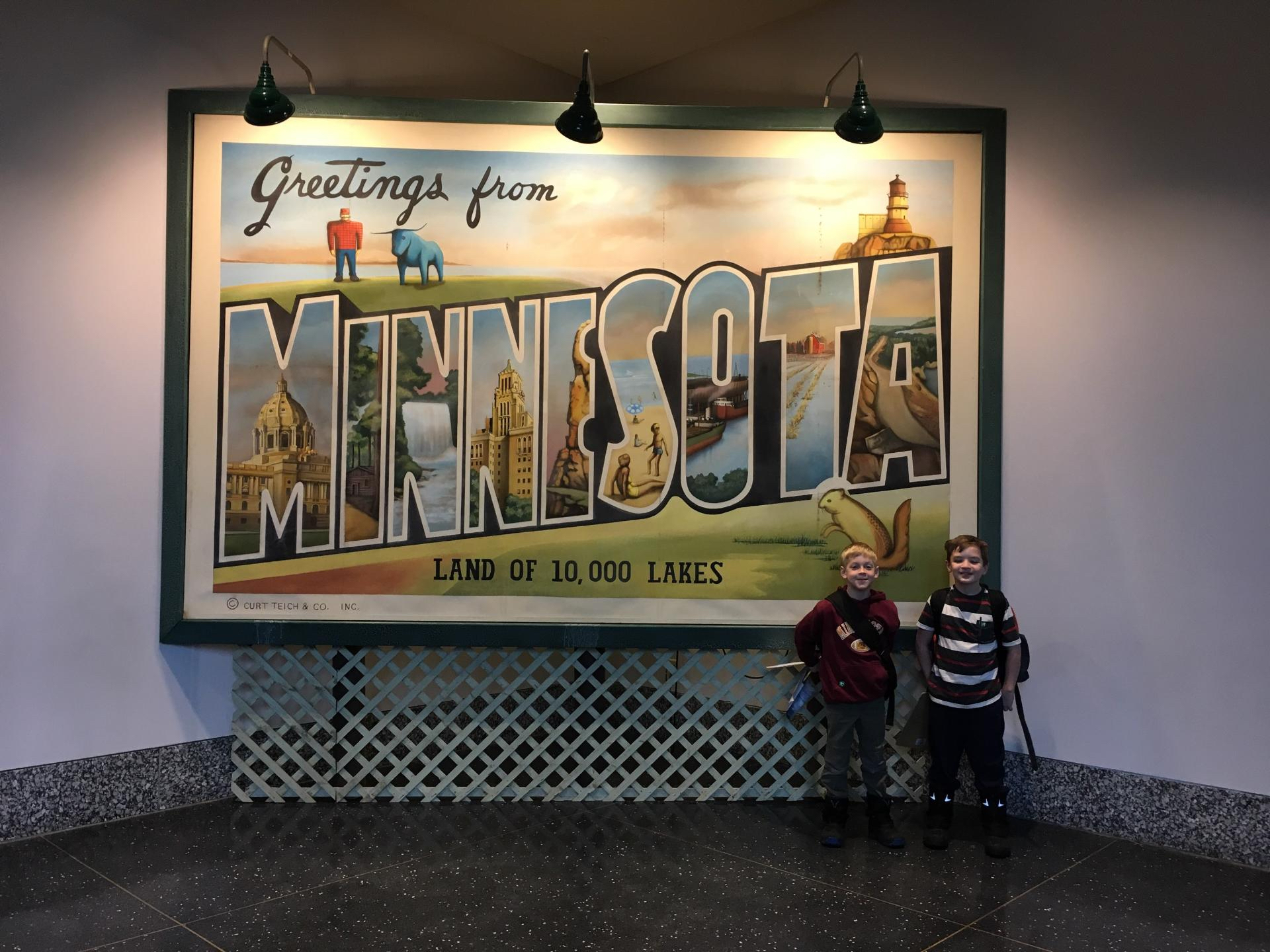
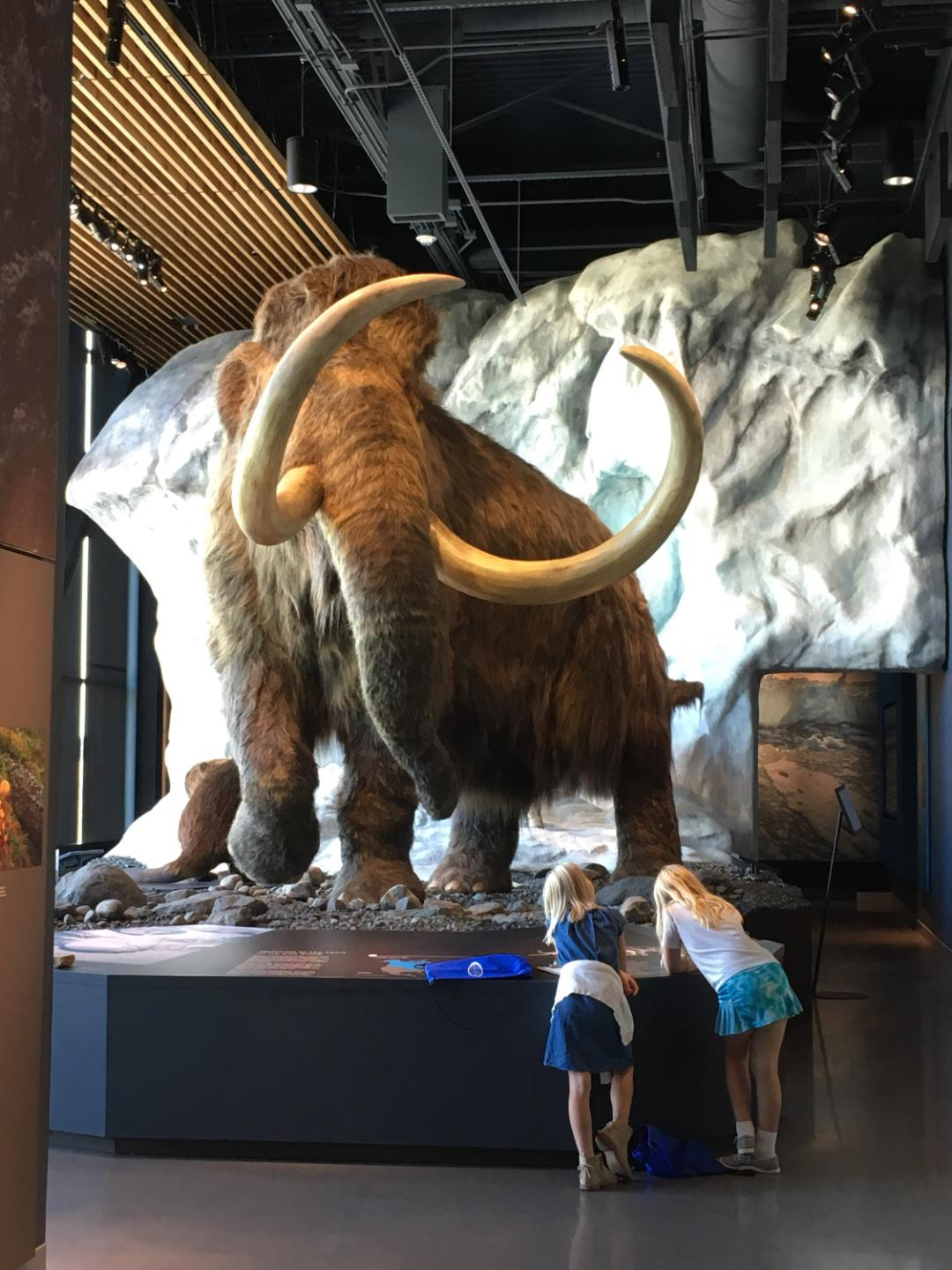
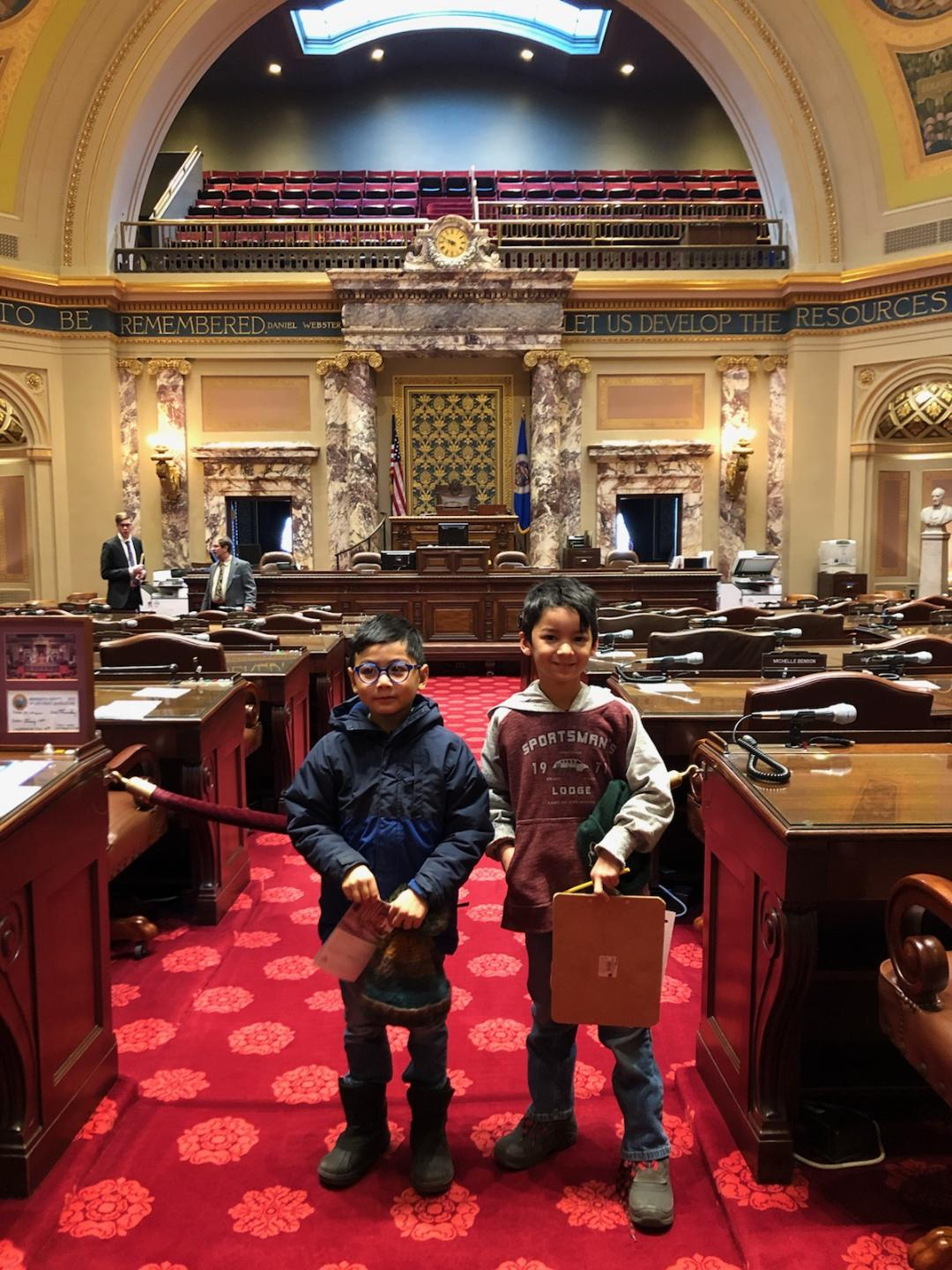
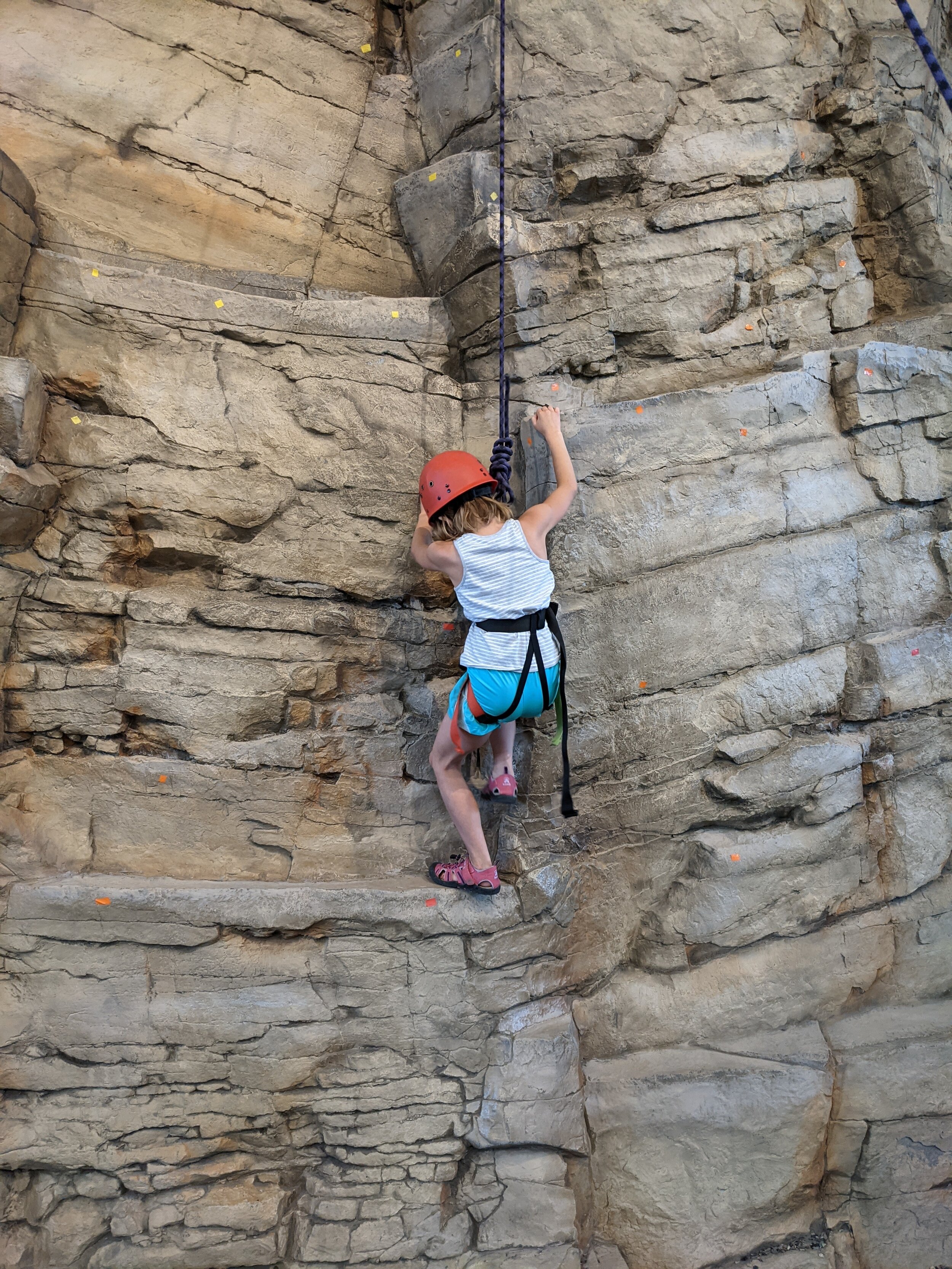
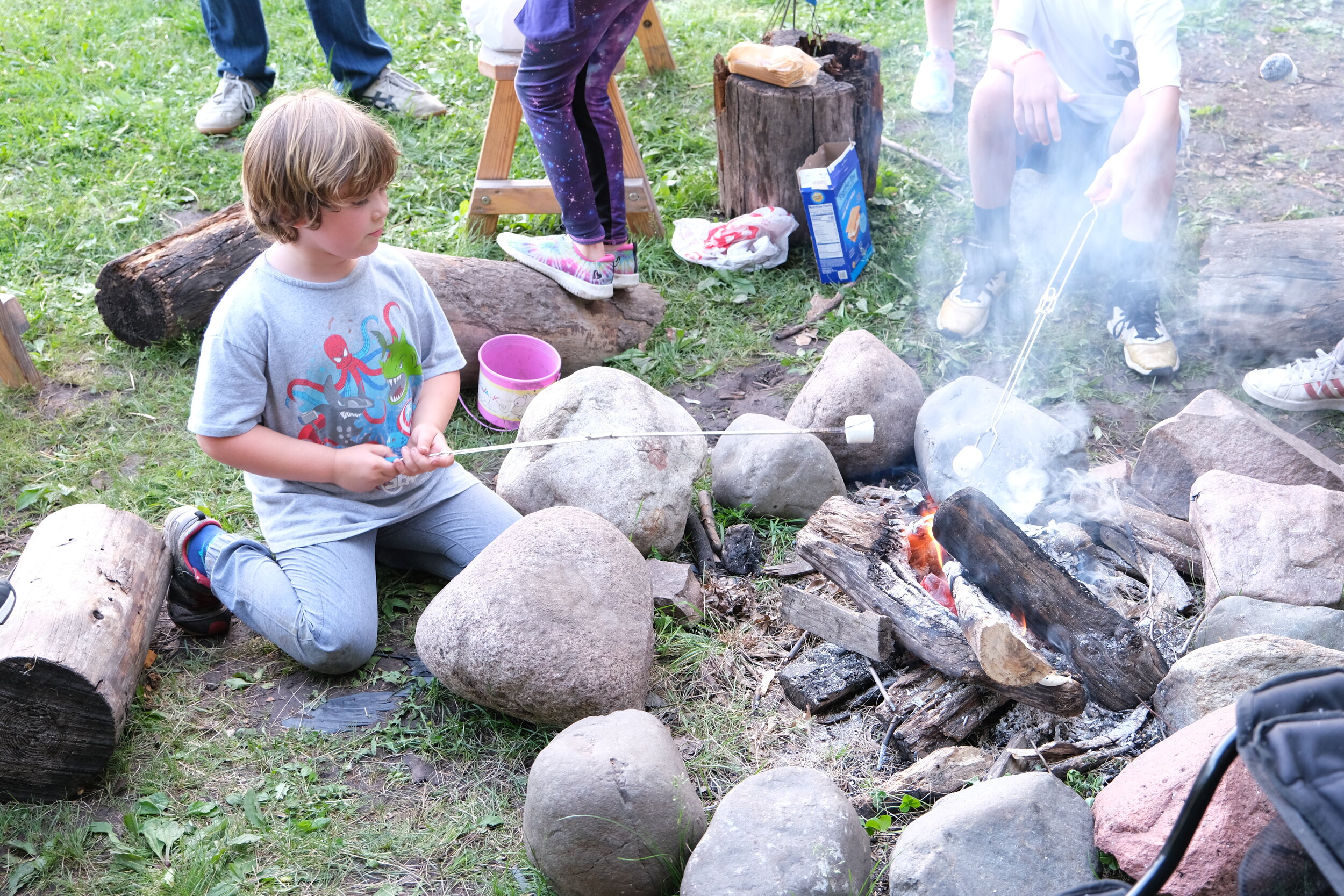
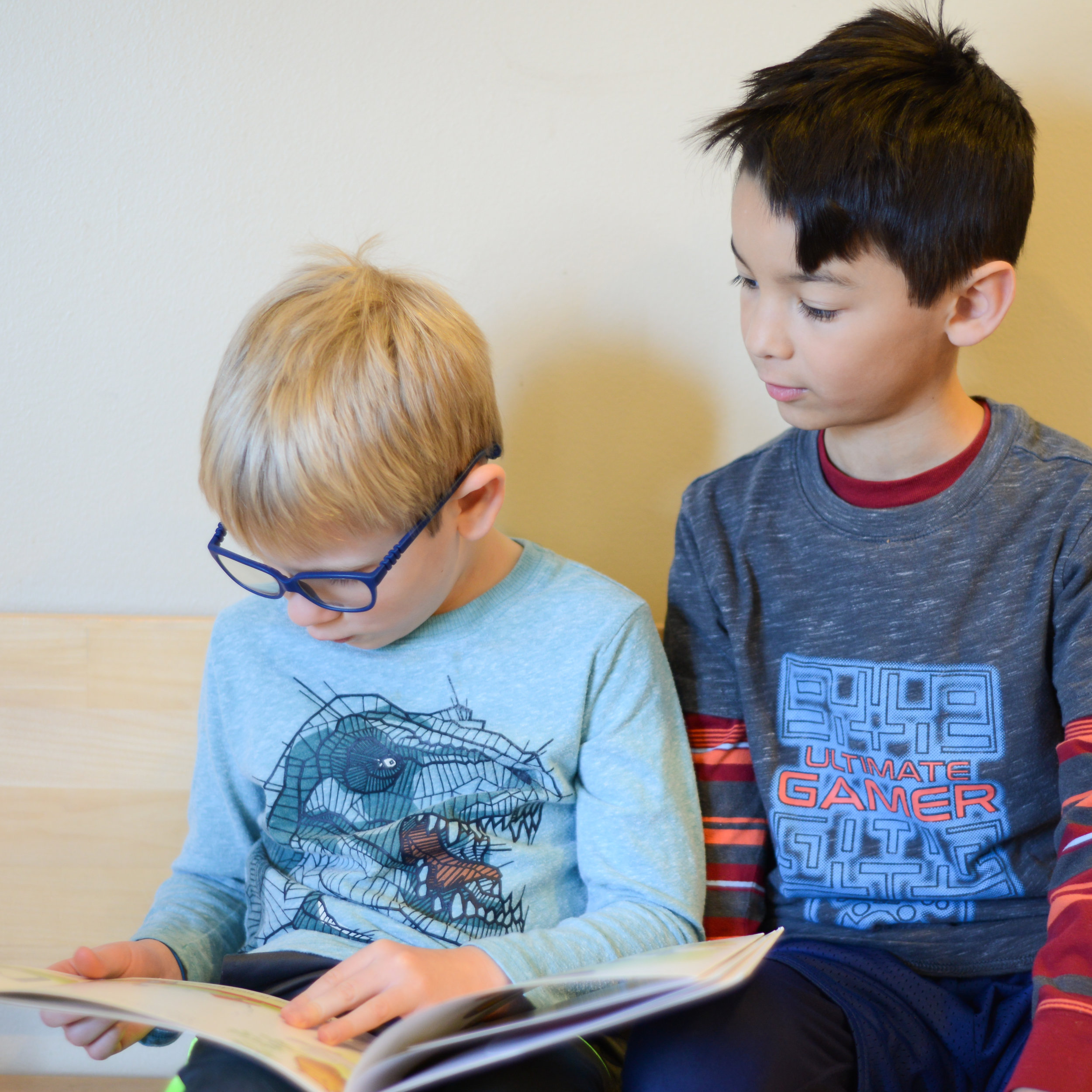
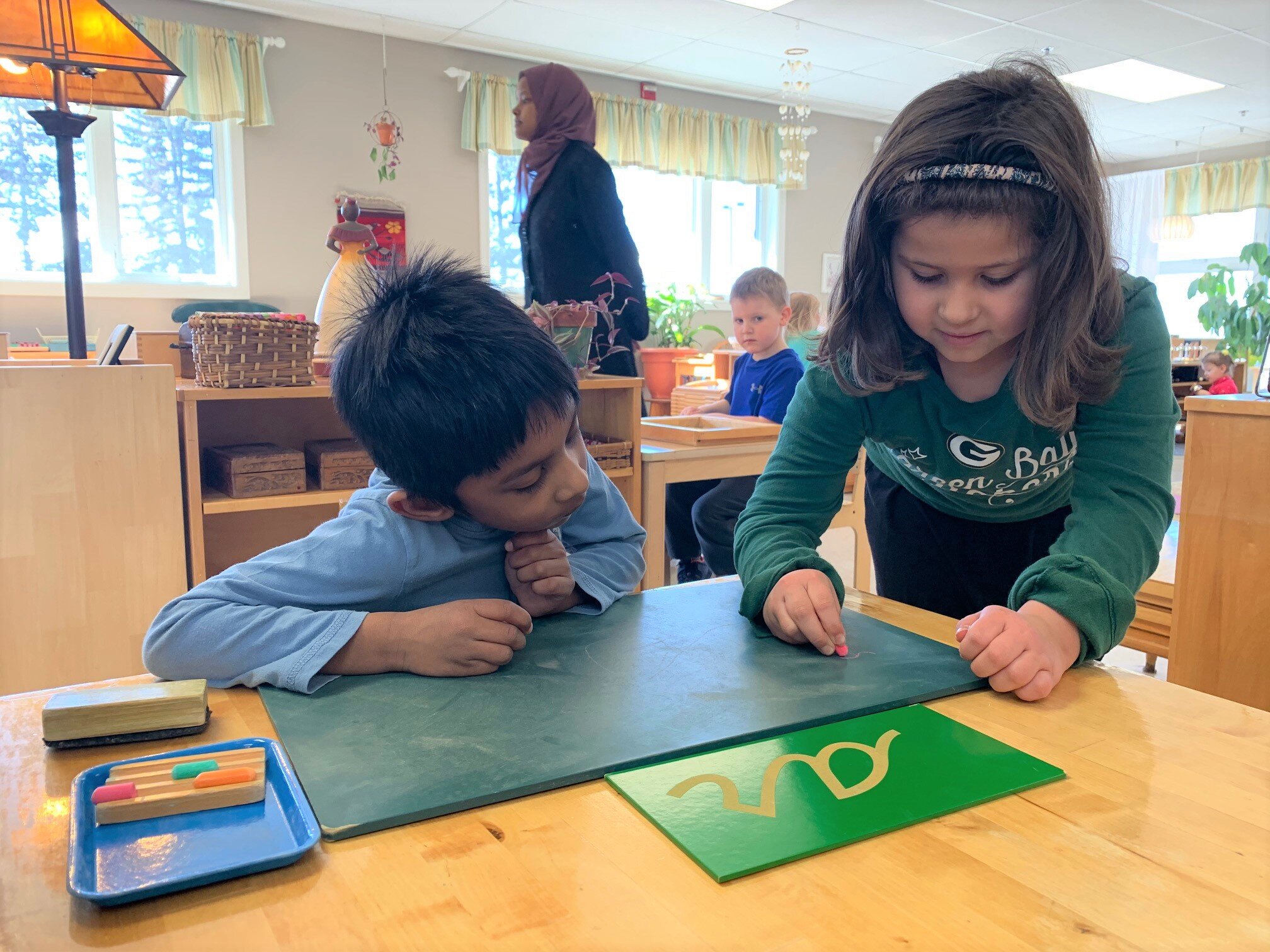
GOING OUT
Elementary children have a need to learn how to navigate the world, not just their classroom. We purposefully do not provide everything they will need to learn within our building. The result is that the children must ‘go out’ beyond the limits of the classroom to find the information or resource that they need. A ‘Going Out’ is a mini-field trip created and planned by a small group of children. They find a resource in the community such as a library or a museum, schedule the outing, arrange for their own transportation and supervision (by staff or parent volunteers), and then are expected to conduct themselves with dignity while out in public. Each Going Out is an entire course of study on independence, responsibility and good citizenship — to say nothing of the intellectual rewards that children get from such experience.
“When the child goes out, it is the world itself that offers itself to him. Let us take the child out to show him real things instead of making objects which represent ideas and closing them in cupboards.” -Dr. Maria Montessori
Mentoring
The Elementary program is a mix-ed age environment ages 6 to 12 where that older children can mentor the younger children. In addition to this classroom mentorship, we pair Kindergarten children with Elementary mentors on a regular basis, primarily to work on reading. Not only does this inspire the younger child, it fosters a sense of pride and leadership in the older child.
COSMIC EDUCATION
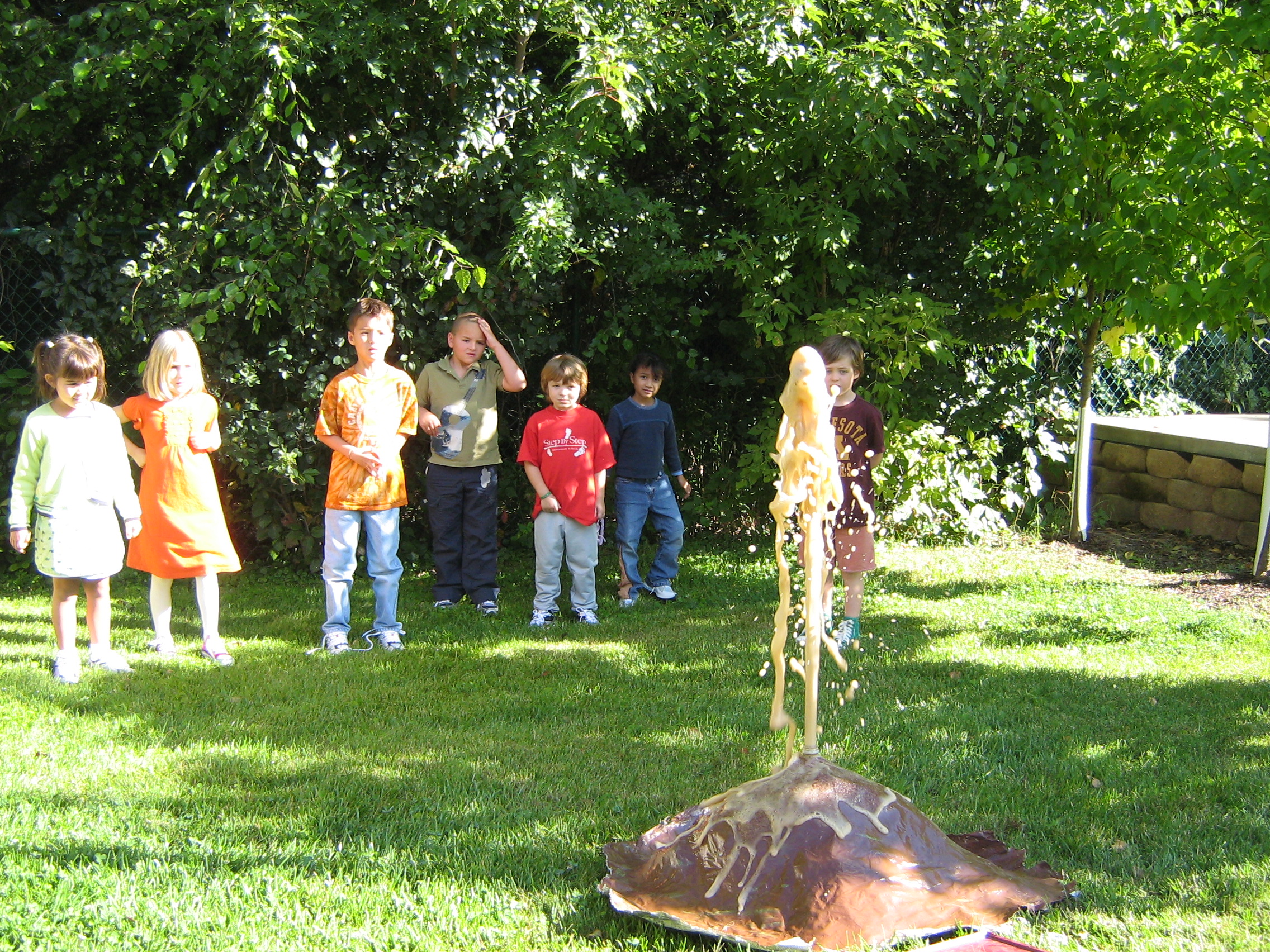
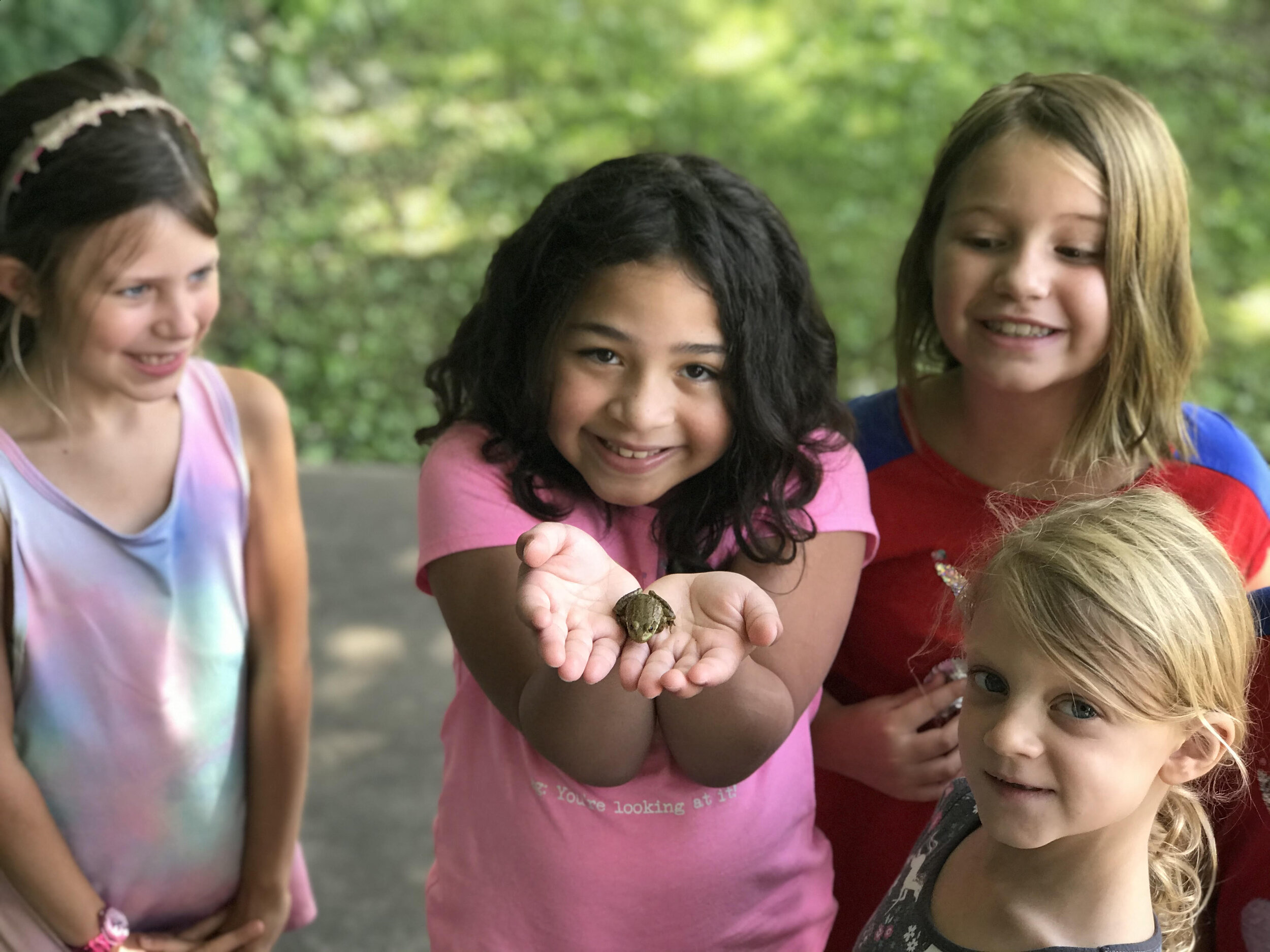
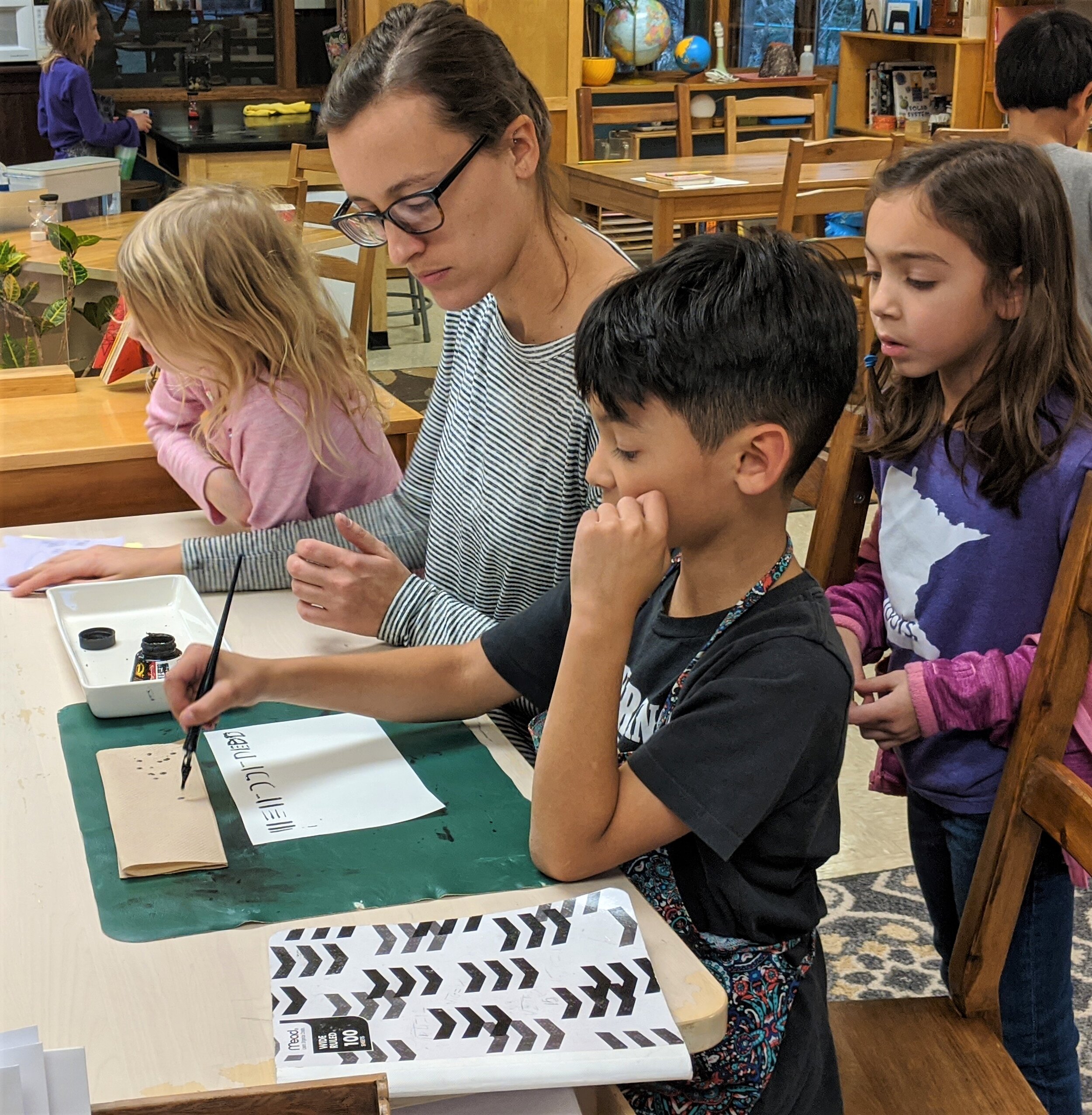
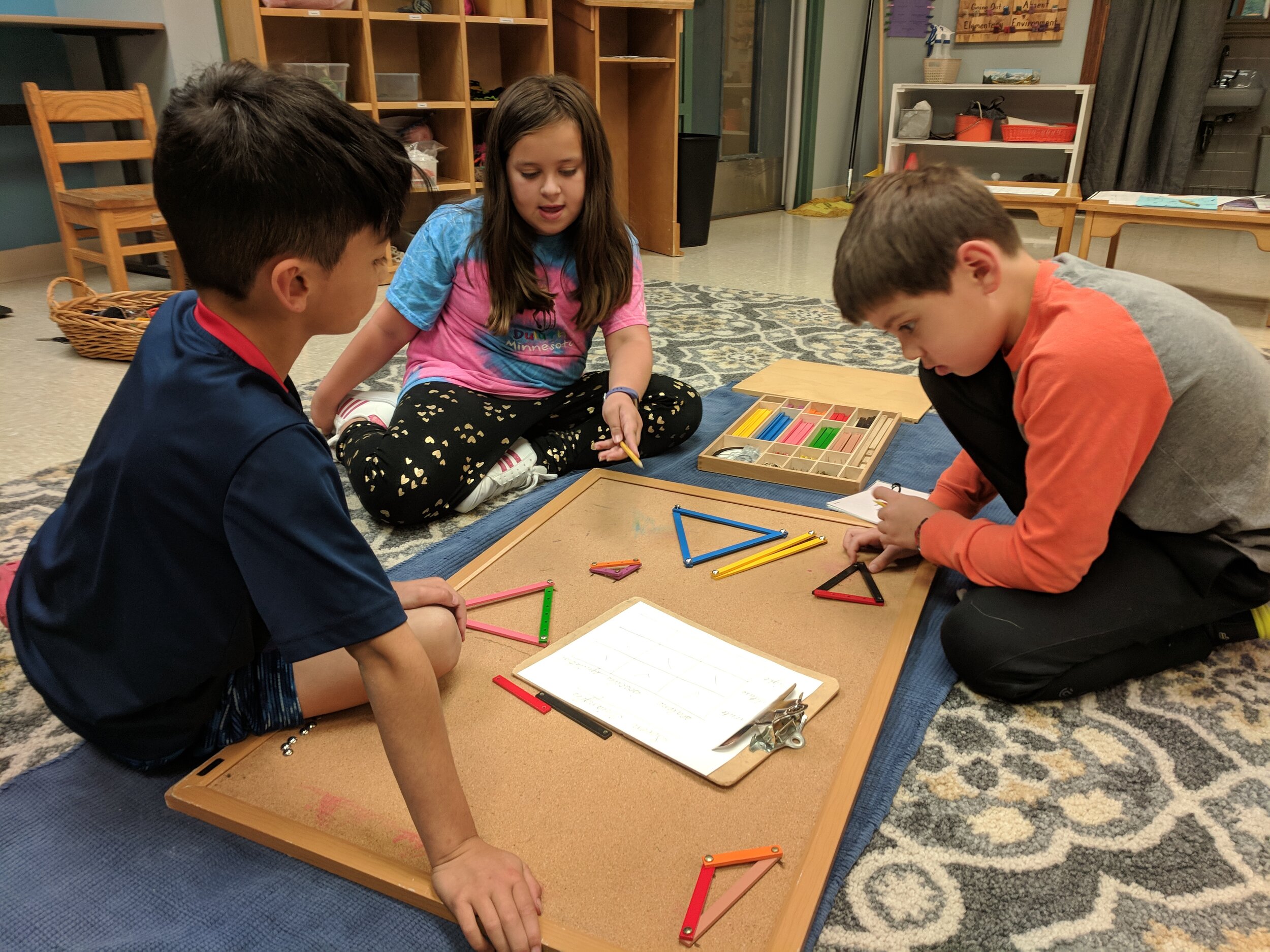
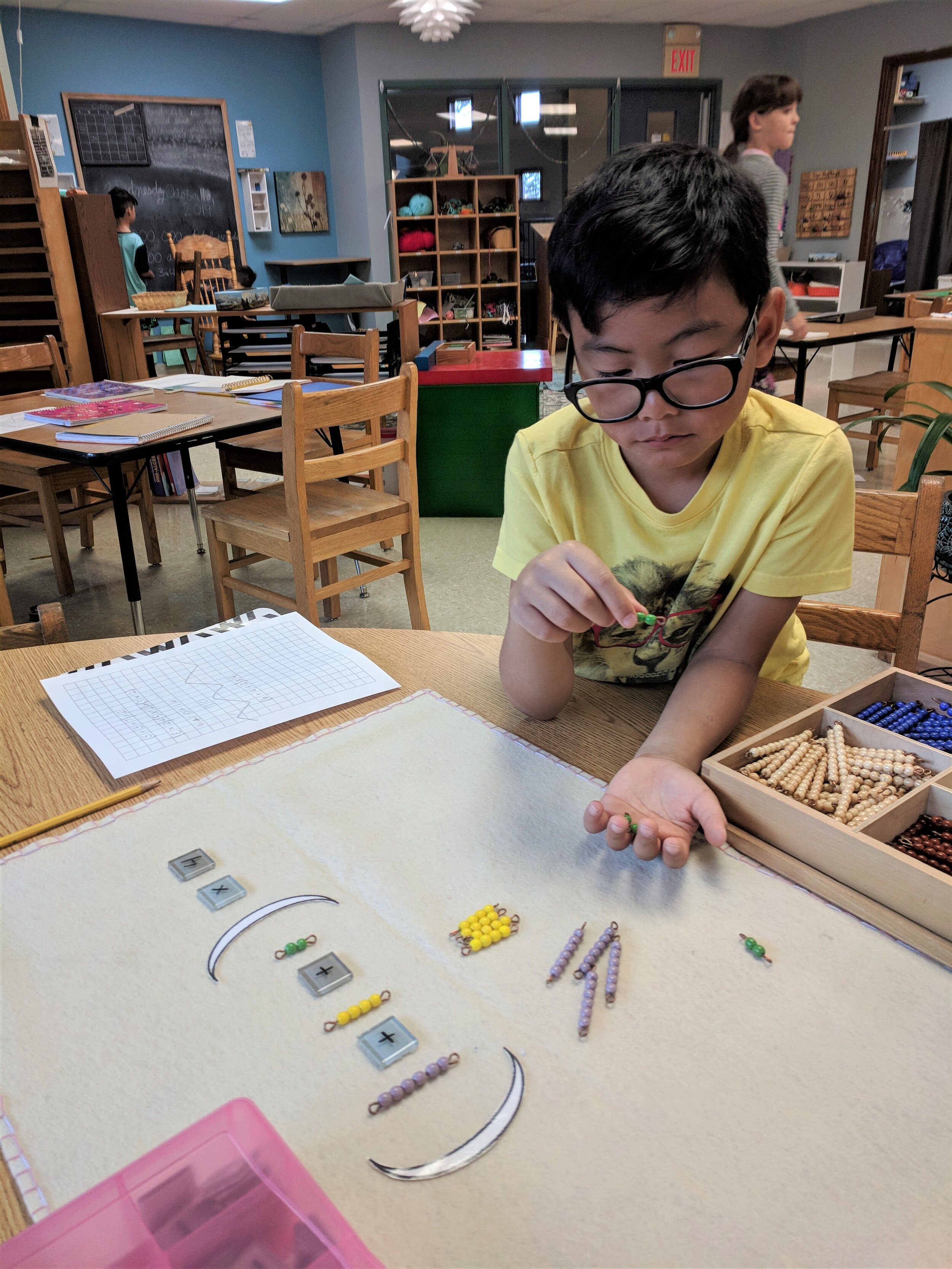
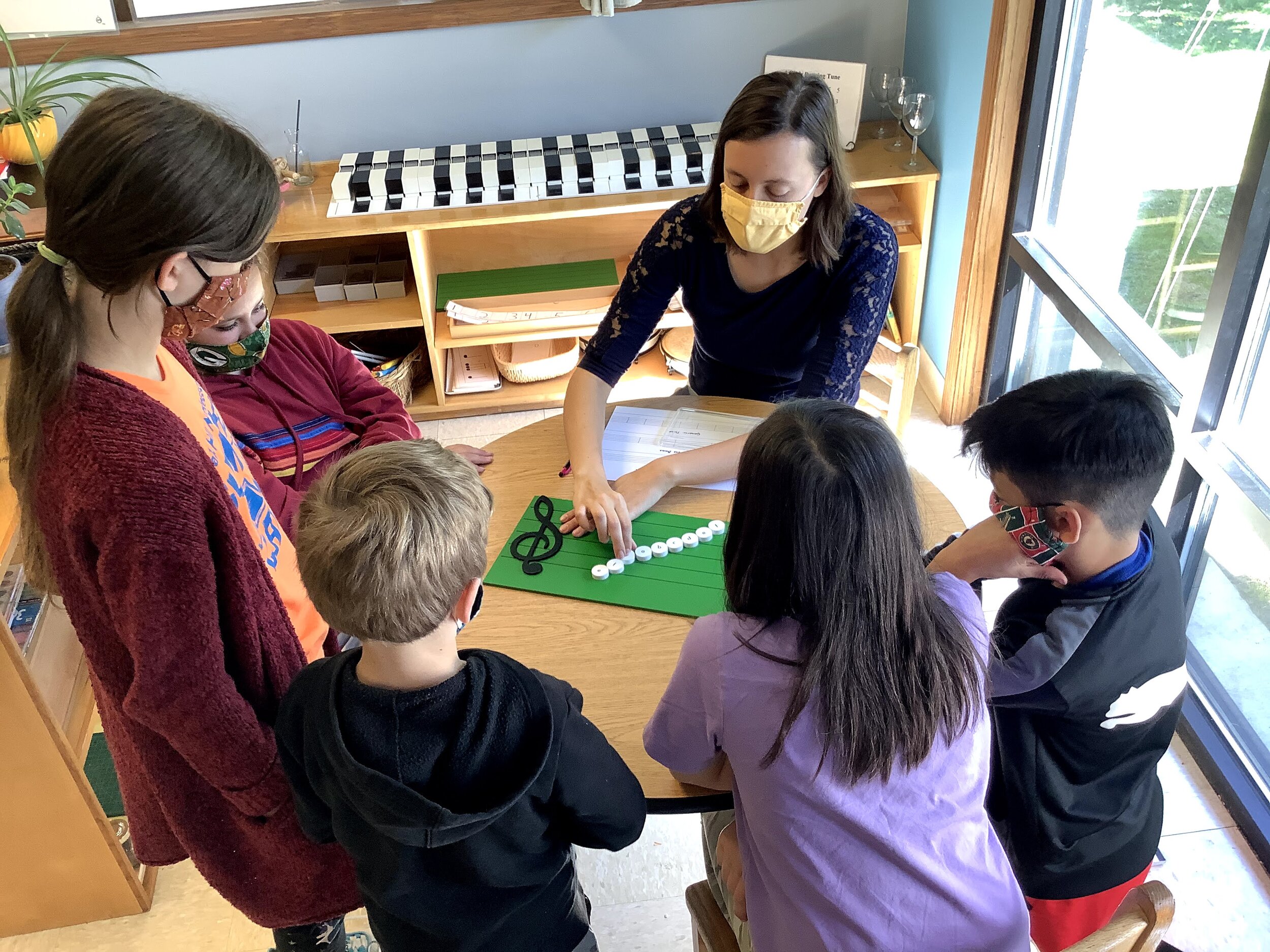
COSMIC EDUCATION
COSMIC EDUCATION, the cornerstone of Montessori Philosophy. It is the method in which our universe and world is de-compartmentalized through the telling of stories that correspond to subject areas, such as geography, life forms, culture, history, etc. This gives the child a perspective of interconnectedness, the goal of which is to spark and capture the child's interest as children at this age (we call this the Second Plan of Development) have an insatiable thirst for knowledge. It describes the role of education as comprehensive, holistic and purposeful; to encompass the development of the whole person within the context of the universe.
“Paying for school was never in our plan, but leaving WBMS before both our two children are through the 6th grade is something we would never consider now.”
